Shows
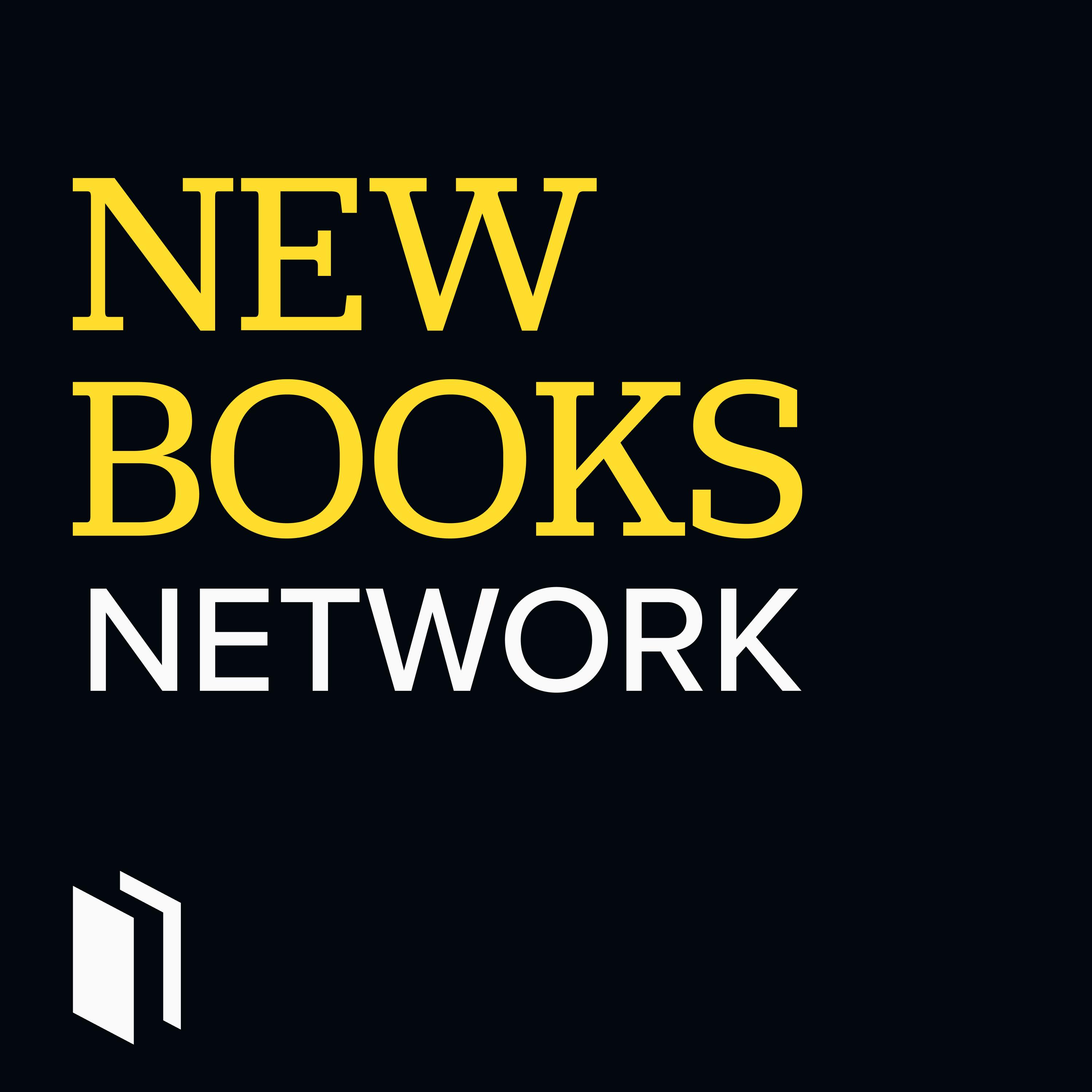 New Books NetworkHow do Small States Navigate and Shape the Liberal World Order? A conversation with Dylan LohGlobally, the liberal international order has been under pressure for quite some time, but we often tend to discuss this in relation to big international players such as the United States and China. But how do small states like Singapore navigate and shape this increasingly contested space? Join Petra Alderman as she talks to Dylan Loh about Singapore’s understanding of the liberal international order, its position on liberal democratic values and human rights, its relations with big international players, and the ways in which this small city state seeks to uphold and modify the liberal international order, so it...2025-06-2635 min
New Books NetworkHow do Small States Navigate and Shape the Liberal World Order? A conversation with Dylan LohGlobally, the liberal international order has been under pressure for quite some time, but we often tend to discuss this in relation to big international players such as the United States and China. But how do small states like Singapore navigate and shape this increasingly contested space? Join Petra Alderman as she talks to Dylan Loh about Singapore’s understanding of the liberal international order, its position on liberal democratic values and human rights, its relations with big international players, and the ways in which this small city state seeks to uphold and modify the liberal international order, so it...2025-06-2635 min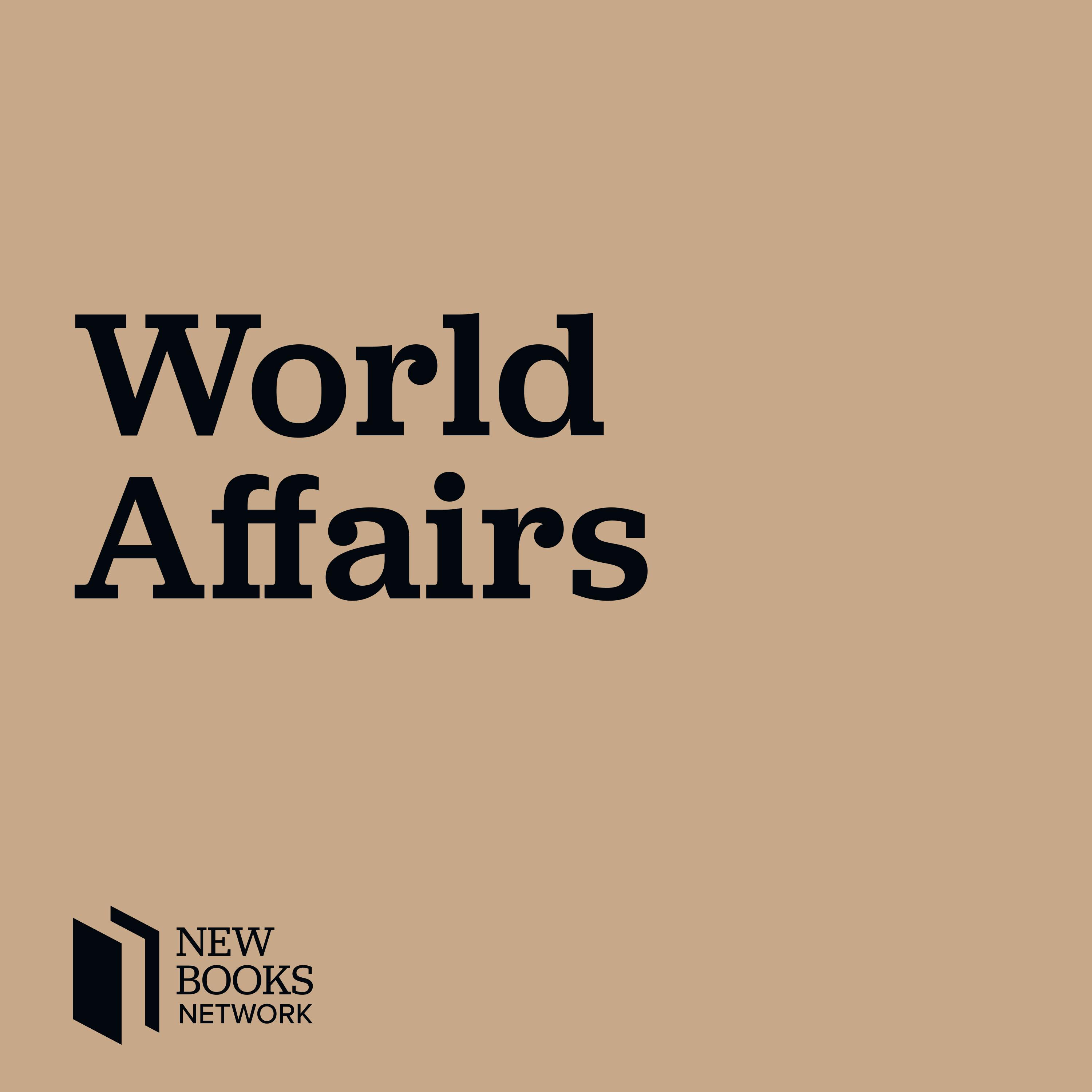 New Books in World AffairsHow do Small States Navigate and Shape the Liberal World Order? A conversation with Dylan LohGlobally, the liberal international order has been under pressure for quite some time, but we often tend to discuss this in relation to big international players such as the United States and China. But how do small states like Singapore navigate and shape this increasingly contested space? Join Petra Alderman as she talks to Dylan Loh about Singapore’s understanding of the liberal international order, its position on liberal democratic values and human rights, its relations with big international players, and the ways in which this small city state seeks to uphold and modify the liberal international order, so it...2025-06-2635 min
New Books in World AffairsHow do Small States Navigate and Shape the Liberal World Order? A conversation with Dylan LohGlobally, the liberal international order has been under pressure for quite some time, but we often tend to discuss this in relation to big international players such as the United States and China. But how do small states like Singapore navigate and shape this increasingly contested space? Join Petra Alderman as she talks to Dylan Loh about Singapore’s understanding of the liberal international order, its position on liberal democratic values and human rights, its relations with big international players, and the ways in which this small city state seeks to uphold and modify the liberal international order, so it...2025-06-2635 min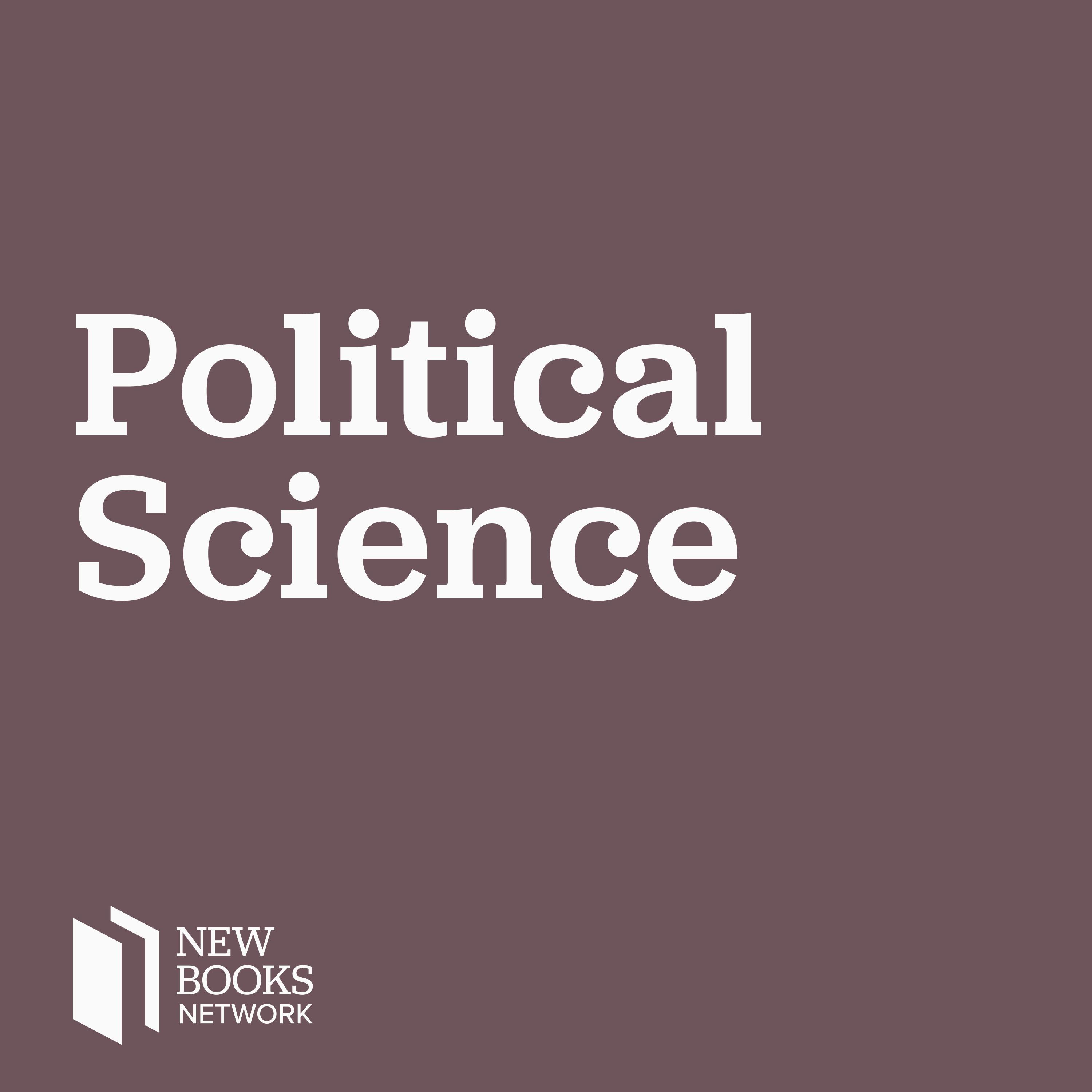 New Books in Political ScienceHow do Small States Navigate and Shape the Liberal World Order? A conversation with Dylan LohGlobally, the liberal international order has been under pressure for quite some time, but we often tend to discuss this in relation to big international players such as the United States and China. But how do small states like Singapore navigate and shape this increasingly contested space? Join Petra Alderman as she talks to Dylan Loh about Singapore’s understanding of the liberal international order, its position on liberal democratic values and human rights, its relations with big international players, and the ways in which this small city state seeks to uphold and modify the liberal international order, so it...2025-06-2635 min
New Books in Political ScienceHow do Small States Navigate and Shape the Liberal World Order? A conversation with Dylan LohGlobally, the liberal international order has been under pressure for quite some time, but we often tend to discuss this in relation to big international players such as the United States and China. But how do small states like Singapore navigate and shape this increasingly contested space? Join Petra Alderman as she talks to Dylan Loh about Singapore’s understanding of the liberal international order, its position on liberal democratic values and human rights, its relations with big international players, and the ways in which this small city state seeks to uphold and modify the liberal international order, so it...2025-06-2635 min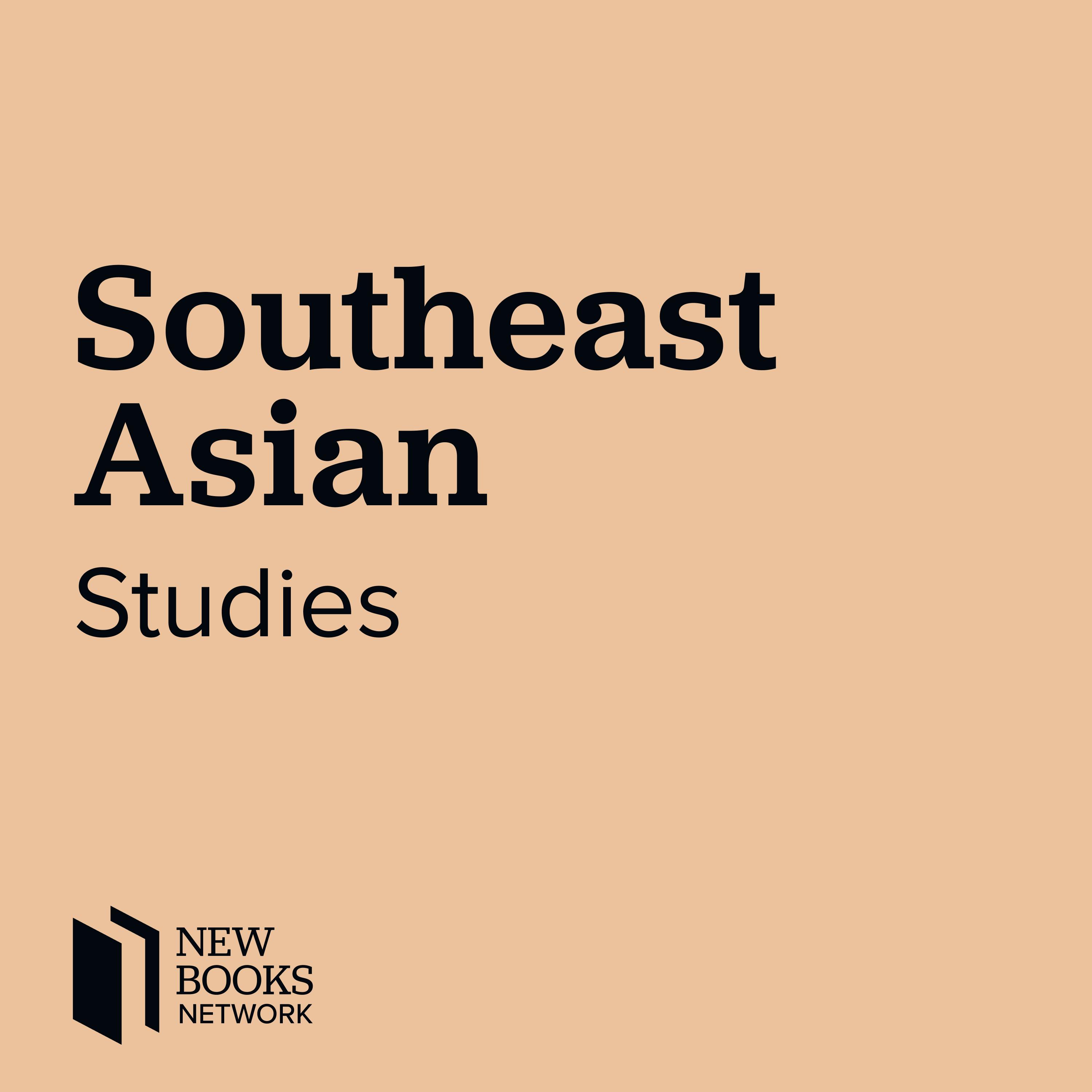 New Books in Southeast Asian StudiesHow do Small States Navigate and Shape the Liberal World Order? A conversation with Dylan LohGlobally, the liberal international order has been under pressure for quite some time, but we often tend to discuss this in relation to big international players such as the United States and China. But how do small states like Singapore navigate and shape this increasingly contested space? Join Petra Alderman as she talks to Dylan Loh about Singapore’s understanding of the liberal international order, its position on liberal democratic values and human rights, its relations with big international players, and the ways in which this small city state seeks to uphold and modify the liberal international order, so it...2025-06-2635 min
New Books in Southeast Asian StudiesHow do Small States Navigate and Shape the Liberal World Order? A conversation with Dylan LohGlobally, the liberal international order has been under pressure for quite some time, but we often tend to discuss this in relation to big international players such as the United States and China. But how do small states like Singapore navigate and shape this increasingly contested space? Join Petra Alderman as she talks to Dylan Loh about Singapore’s understanding of the liberal international order, its position on liberal democratic values and human rights, its relations with big international players, and the ways in which this small city state seeks to uphold and modify the liberal international order, so it...2025-06-2635 min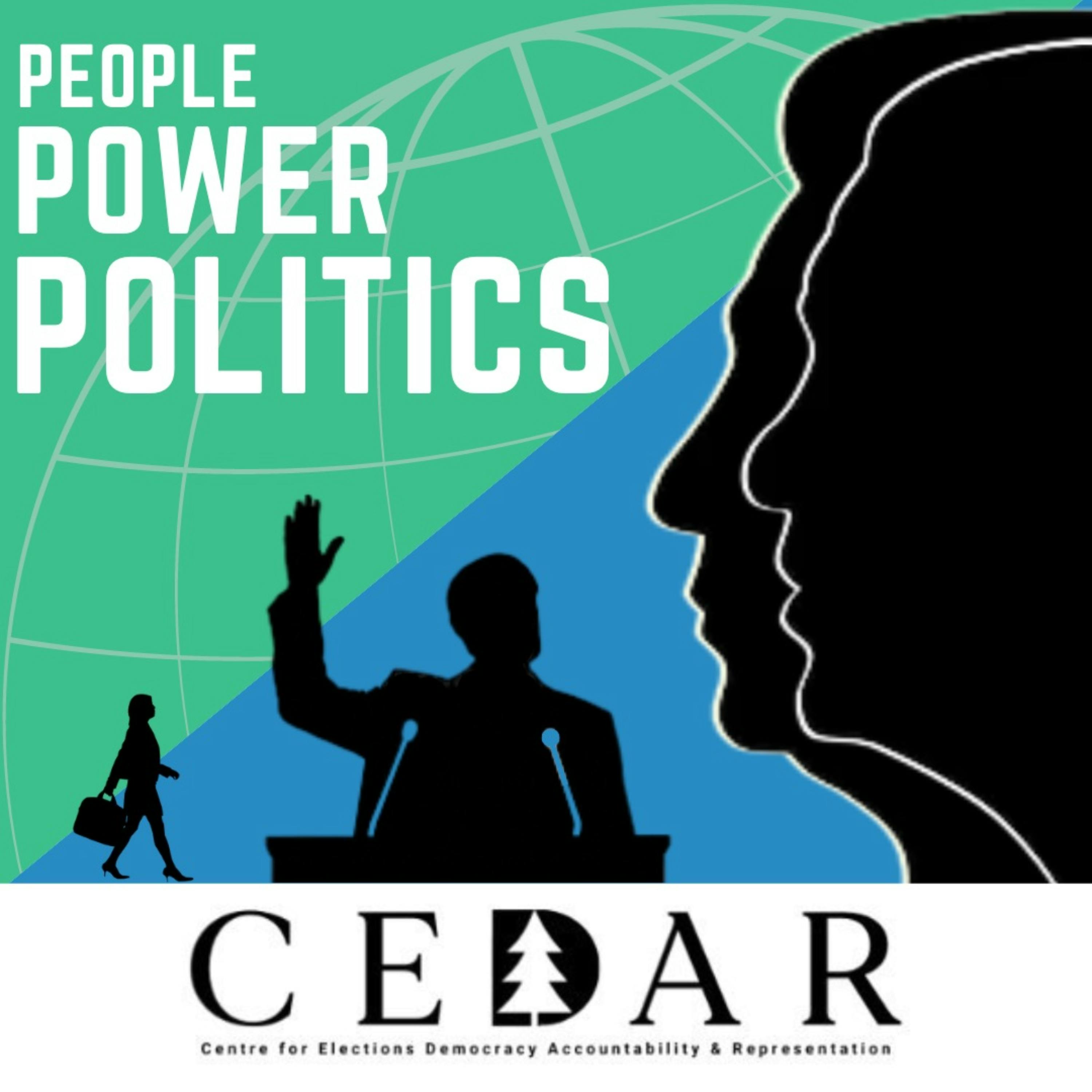 People, Power, PoliticsHow do Small States Navigate and Shape the Liberal World Order? A conversation with Dylan LohGlobally, the liberal international order has been under pressure for quite some time, but we often tend to discuss this in relation to big international players such as the United States and China. But how do small states like Singapore navigate and shape this increasingly contested space? Join Petra Alderman as she talks to Dylan Loh about Singapore’s understanding of the liberal international order, its position on liberal democratic values and human rights, its relations with big international players, and the ways in which this small city state seeks to uphold and modify the liberal international order, so it...2025-06-2635 min
People, Power, PoliticsHow do Small States Navigate and Shape the Liberal World Order? A conversation with Dylan LohGlobally, the liberal international order has been under pressure for quite some time, but we often tend to discuss this in relation to big international players such as the United States and China. But how do small states like Singapore navigate and shape this increasingly contested space? Join Petra Alderman as she talks to Dylan Loh about Singapore’s understanding of the liberal international order, its position on liberal democratic values and human rights, its relations with big international players, and the ways in which this small city state seeks to uphold and modify the liberal international order, so it...2025-06-2635 min New Books in Political ScienceThe May 2025 Mid-Term Elections in the PhilippinesToday’s episode focuses on the mid-term elections in the Philippines which were held in May of this year, including all local elected positions, all seats in the House of Representatives, and twelve of the twenty-four seats in the Senate. The elections have been viewed as a reflection on the administration of President Ferdinand ‘Bongbong’ Marcos, Jr. and as especially consequential for the future of Vice-President Sara Duterte. She was impeached by the House of Representatives in February 2025, setting the stage for a trial by the Senate, but with her continuing popularity making her a serious contender for the presid...2025-06-2547 min
New Books in Political ScienceThe May 2025 Mid-Term Elections in the PhilippinesToday’s episode focuses on the mid-term elections in the Philippines which were held in May of this year, including all local elected positions, all seats in the House of Representatives, and twelve of the twenty-four seats in the Senate. The elections have been viewed as a reflection on the administration of President Ferdinand ‘Bongbong’ Marcos, Jr. and as especially consequential for the future of Vice-President Sara Duterte. She was impeached by the House of Representatives in February 2025, setting the stage for a trial by the Senate, but with her continuing popularity making her a serious contender for the presid...2025-06-2547 min New Books in Southeast Asian StudiesThe May 2025 Mid-Term Elections in the PhilippinesToday’s episode focuses on the mid-term elections in the Philippines which were held in May of this year, including all local elected positions, all seats in the House of Representatives, and twelve of the twenty-four seats in the Senate. The elections have been viewed as a reflection on the administration of President Ferdinand ‘Bongbong’ Marcos, Jr. and as especially consequential for the future of Vice-President Sara Duterte. She was impeached by the House of Representatives in February 2025, setting the stage for a trial by the Senate, but with her continuing popularity making her a serious contender for the presid...2025-06-2547 min
New Books in Southeast Asian StudiesThe May 2025 Mid-Term Elections in the PhilippinesToday’s episode focuses on the mid-term elections in the Philippines which were held in May of this year, including all local elected positions, all seats in the House of Representatives, and twelve of the twenty-four seats in the Senate. The elections have been viewed as a reflection on the administration of President Ferdinand ‘Bongbong’ Marcos, Jr. and as especially consequential for the future of Vice-President Sara Duterte. She was impeached by the House of Representatives in February 2025, setting the stage for a trial by the Senate, but with her continuing popularity making her a serious contender for the presid...2025-06-2547 min New Books NetworkThe May 2025 Mid-Term Elections in the PhilippinesToday’s episode focuses on the mid-term elections in the Philippines which were held in May of this year, including all local elected positions, all seats in the House of Representatives, and twelve of the twenty-four seats in the Senate. The elections have been viewed as a reflection on the administration of President Ferdinand ‘Bongbong’ Marcos, Jr. and as especially consequential for the future of Vice-President Sara Duterte. She was impeached by the House of Representatives in February 2025, setting the stage for a trial by the Senate, but with her continuing popularity making her a serious contender for the presid...2025-06-2547 min
New Books NetworkThe May 2025 Mid-Term Elections in the PhilippinesToday’s episode focuses on the mid-term elections in the Philippines which were held in May of this year, including all local elected positions, all seats in the House of Representatives, and twelve of the twenty-four seats in the Senate. The elections have been viewed as a reflection on the administration of President Ferdinand ‘Bongbong’ Marcos, Jr. and as especially consequential for the future of Vice-President Sara Duterte. She was impeached by the House of Representatives in February 2025, setting the stage for a trial by the Senate, but with her continuing popularity making her a serious contender for the presid...2025-06-2547 min New Books in Political ScienceIs Democracy and Peace Possible in Myanmar? A Conversation with Claire SmithAs the civil conflict in Myanmar passes its fourth anniversary, is this ethnically complex country any closer to a peaceful resolution of its internal conflict? Do opposition forces have a singular vision for what a post-conflict Myanmar might look like, or could the country simply break apart? Join Petra Alderman as she talks to Claire Smith about the evolution of Myanmar’s ongoing conflict, the different domestic and international actors involved, potential pathways for peace, and the broader regional and geopolitical implications of intervention in Myanmar. *This episode was recorded prior to the March 2025 earthquake*Project website (wit...2025-04-1741 min
New Books in Political ScienceIs Democracy and Peace Possible in Myanmar? A Conversation with Claire SmithAs the civil conflict in Myanmar passes its fourth anniversary, is this ethnically complex country any closer to a peaceful resolution of its internal conflict? Do opposition forces have a singular vision for what a post-conflict Myanmar might look like, or could the country simply break apart? Join Petra Alderman as she talks to Claire Smith about the evolution of Myanmar’s ongoing conflict, the different domestic and international actors involved, potential pathways for peace, and the broader regional and geopolitical implications of intervention in Myanmar. *This episode was recorded prior to the March 2025 earthquake*Project website (wit...2025-04-1741 min New Books in Southeast Asian StudiesIs Democracy and Peace Possible in Myanmar? A Conversation with Claire SmithAs the civil conflict in Myanmar passes its fourth anniversary, is this ethnically complex country any closer to a peaceful resolution of its internal conflict? Do opposition forces have a singular vision for what a post-conflict Myanmar might look like, or could the country simply break apart? Join Petra Alderman as she talks to Claire Smith about the evolution of Myanmar’s ongoing conflict, the different domestic and international actors involved, potential pathways for peace, and the broader regional and geopolitical implications of intervention in Myanmar. *This episode was recorded prior to the March 2025 earthquake*Project website (wit...2025-04-1641 min
New Books in Southeast Asian StudiesIs Democracy and Peace Possible in Myanmar? A Conversation with Claire SmithAs the civil conflict in Myanmar passes its fourth anniversary, is this ethnically complex country any closer to a peaceful resolution of its internal conflict? Do opposition forces have a singular vision for what a post-conflict Myanmar might look like, or could the country simply break apart? Join Petra Alderman as she talks to Claire Smith about the evolution of Myanmar’s ongoing conflict, the different domestic and international actors involved, potential pathways for peace, and the broader regional and geopolitical implications of intervention in Myanmar. *This episode was recorded prior to the March 2025 earthquake*Project website (wit...2025-04-1641 min People, Power, PoliticsIs Democracy and Peace Possible in Myanmar? A Conversation with Claire SmithAs the civil conflict in Myanmar passes its fourth anniversary, is this ethnically complex country any closer to a peaceful resolution of its internal conflict? Do opposition forces have a singular vision for what a post-conflict Myanmar might look like, or could the country simply break apart? Join Petra Alderman as she talks to Claire Smith about the evolution of Myanmar’s ongoing conflict, the different domestic and international actors involved, potential pathways for peace, and the broader regional and geopolitical implications of intervention in Myanmar. *This episode was recorded prior to the March 2025 earthquake*Project website (wit...2025-04-1639 min
People, Power, PoliticsIs Democracy and Peace Possible in Myanmar? A Conversation with Claire SmithAs the civil conflict in Myanmar passes its fourth anniversary, is this ethnically complex country any closer to a peaceful resolution of its internal conflict? Do opposition forces have a singular vision for what a post-conflict Myanmar might look like, or could the country simply break apart? Join Petra Alderman as she talks to Claire Smith about the evolution of Myanmar’s ongoing conflict, the different domestic and international actors involved, potential pathways for peace, and the broader regional and geopolitical implications of intervention in Myanmar. *This episode was recorded prior to the March 2025 earthquake*Project website (wit...2025-04-1639 min Dialogues on Southeast AsiaPublic Healthcare Under Decentralized Governance in Indonesia and the PhilippinesToday’s episode focuses on the policy challenges and politics of public healthcare in Southeast Asia, a topic which has become increasingly visible and important in Southeast Asia and in the study of the region over the past decades in the context of expanding public healthcare programs in many countries across the region and the recent experience of the global pandemic.To discuss these issues, we are joined by Professor Sarah Shair-Rosenfield, who has been conducting research on public healthcare in Indonesia and the Philippines over the past several years. Sarah Shair-Rosenfield is a Professor of Comparative Po...2024-11-2440 min
Dialogues on Southeast AsiaPublic Healthcare Under Decentralized Governance in Indonesia and the PhilippinesToday’s episode focuses on the policy challenges and politics of public healthcare in Southeast Asia, a topic which has become increasingly visible and important in Southeast Asia and in the study of the region over the past decades in the context of expanding public healthcare programs in many countries across the region and the recent experience of the global pandemic.To discuss these issues, we are joined by Professor Sarah Shair-Rosenfield, who has been conducting research on public healthcare in Indonesia and the Philippines over the past several years. Sarah Shair-Rosenfield is a Professor of Comparative Po...2024-11-2440 min Dialogues on Southeast AsiaUnpacking Authoritarianism in Southeast Asia with Dan SlaterToday’s episode focuses on a major issue of enduring importance in Southeast Asia and in Southeast Asian Studies: authoritarianism. Even today, various forms of dictatorship remain alive and well across Southeast Asia, raising questions about their origins, their endurance, and the prospects for their evolution. To discuss these issues, we are joined by Dan Slater, one of the world’s leading specialists on authoritarianism in Southeast Asia and the author of important and influential works on this topic and more broadly on the politics of the region.Dan Slater is the James Orin Murfin Professor of Poli...2024-11-0556 min
Dialogues on Southeast AsiaUnpacking Authoritarianism in Southeast Asia with Dan SlaterToday’s episode focuses on a major issue of enduring importance in Southeast Asia and in Southeast Asian Studies: authoritarianism. Even today, various forms of dictatorship remain alive and well across Southeast Asia, raising questions about their origins, their endurance, and the prospects for their evolution. To discuss these issues, we are joined by Dan Slater, one of the world’s leading specialists on authoritarianism in Southeast Asia and the author of important and influential works on this topic and more broadly on the politics of the region.Dan Slater is the James Orin Murfin Professor of Poli...2024-11-0556 min Dialogues on Southeast AsiaBananapocalypse: Plantation Southeast Asia and Its Many AfterlivesThis episode focuses on a cluster of issues of longstanding significance in Southeast Asia and in Southeast Asian Studies – plantation agriculture, global commodity chains or supply chains, exploitation of labour and environmental degradation, and resistance. To discuss these issues, we are joined by Dr. Alyssa Paredes, an environmental and economic anthropologist who is an Assistant Professor in the Department of Anthropology at the University of Michigan.Dr. Paredes received her PhD in Anthropology (with distinction) from Yale University in 2020. Her work has been published in a variety of journals, including Antipode, Ethnos, Gastronomica, and the Journal of Politi...2024-10-0646 min
Dialogues on Southeast AsiaBananapocalypse: Plantation Southeast Asia and Its Many AfterlivesThis episode focuses on a cluster of issues of longstanding significance in Southeast Asia and in Southeast Asian Studies – plantation agriculture, global commodity chains or supply chains, exploitation of labour and environmental degradation, and resistance. To discuss these issues, we are joined by Dr. Alyssa Paredes, an environmental and economic anthropologist who is an Assistant Professor in the Department of Anthropology at the University of Michigan.Dr. Paredes received her PhD in Anthropology (with distinction) from Yale University in 2020. Her work has been published in a variety of journals, including Antipode, Ethnos, Gastronomica, and the Journal of Politi...2024-10-0646 min Dialogues on Southeast AsiaPrabowo Subianto and the Decline of Indonesian DemocracyToday’s episode focuses on Indonesia, the presidential election held in February 2024, and the impending inauguration of the winner of that election, former Army general and current defence minister Prabowo Subianto, in a few weeks’ time. Prabowo’s victory in February, events over the past several months, and the imminent transition to a Prabowo presidency have heightened concerns about the state of democracy in Indonesia. To discuss these issues, we are joined by Ed Aspinall, one of the world’s leading specialists on Indonesian politics and someone who has been writing about worrying trends in Indonesian politics for many years. 2024-10-0241 min
Dialogues on Southeast AsiaPrabowo Subianto and the Decline of Indonesian DemocracyToday’s episode focuses on Indonesia, the presidential election held in February 2024, and the impending inauguration of the winner of that election, former Army general and current defence minister Prabowo Subianto, in a few weeks’ time. Prabowo’s victory in February, events over the past several months, and the imminent transition to a Prabowo presidency have heightened concerns about the state of democracy in Indonesia. To discuss these issues, we are joined by Ed Aspinall, one of the world’s leading specialists on Indonesian politics and someone who has been writing about worrying trends in Indonesian politics for many years. 2024-10-0241 min Dialogues on Southeast AsiaHow – and How Much – has Malaysian Politics Changed Since 2018, and Why?In this episode, host LSE Southeast Asia Centre Director John Sidel speaks with Meredith Weiss, Professor of Political Science at SUNY Albany and a leading specialist on Malaysian politics. In the interview, Professor Weiss provides in-depth analysis and insights with regard to the complex patterns of continuity and change in Malaysian politics since the watershed election of 2018.Meredith Weiss is a Professor of Political Science at SUNY Albany and founding Director of the SUNY/CUNY Southeast Asia Consortium. She has published widely on social mobilization and civil society, identity politics, elections and political parties, institutional reform, and s...2024-08-1049 min
Dialogues on Southeast AsiaHow – and How Much – has Malaysian Politics Changed Since 2018, and Why?In this episode, host LSE Southeast Asia Centre Director John Sidel speaks with Meredith Weiss, Professor of Political Science at SUNY Albany and a leading specialist on Malaysian politics. In the interview, Professor Weiss provides in-depth analysis and insights with regard to the complex patterns of continuity and change in Malaysian politics since the watershed election of 2018.Meredith Weiss is a Professor of Political Science at SUNY Albany and founding Director of the SUNY/CUNY Southeast Asia Consortium. She has published widely on social mobilization and civil society, identity politics, elections and political parties, institutional reform, and s...2024-08-1049 min Dialogues on Southeast AsiaOn Sino-Vietnamese Border RelationsIn this episode, host SEAC Director John Sidel talks with Dr Qingfei Yin, SEAC Associate and Assistant Professor of International History at LSE. Dr Qingfei Yin talks about her new book State Building in Cold War Asia Comrades and Competitors on the Sino-Vietnamese Border (due out with Cambridge University Press in August 2024), explains how she became interested in her research on China and Vietnam relations and the borderlands between the two countries, and discusses other projects she has begun working on beyond her forthcoming book.Dr Qingfei Yin is Assistant Professor of International History (China and the Wor...2024-07-3148 min
Dialogues on Southeast AsiaOn Sino-Vietnamese Border RelationsIn this episode, host SEAC Director John Sidel talks with Dr Qingfei Yin, SEAC Associate and Assistant Professor of International History at LSE. Dr Qingfei Yin talks about her new book State Building in Cold War Asia Comrades and Competitors on the Sino-Vietnamese Border (due out with Cambridge University Press in August 2024), explains how she became interested in her research on China and Vietnam relations and the borderlands between the two countries, and discusses other projects she has begun working on beyond her forthcoming book.Dr Qingfei Yin is Assistant Professor of International History (China and the Wor...2024-07-3148 min Dialogues on Southeast AsiaJokowi’s Industrial Legacy: A Critical Reflection on ‘Success’ in Indonesia’s Natural Resource SectorIn this episode of Southeast Asia Forum 2024 Series, Prof John Sidel talks with Dr. Eve Warburton from the Australian National University for a critical reflection on Indonesia's industrial policies under President Joko Widodo (Jokowi)One of the principal economic legacies of Indonesian President Joko Widodo (Jokowi) is a (re)turn to resource-based industrialization. Over the course of his second and final term in office (2019-2024), state revenues have risen spectacularly on the back of the country’s mineral product exports, the result of a strict ban on the export of raw nickel ores that compelled domestic and fo...2024-06-211h 28
Dialogues on Southeast AsiaJokowi’s Industrial Legacy: A Critical Reflection on ‘Success’ in Indonesia’s Natural Resource SectorIn this episode of Southeast Asia Forum 2024 Series, Prof John Sidel talks with Dr. Eve Warburton from the Australian National University for a critical reflection on Indonesia's industrial policies under President Joko Widodo (Jokowi)One of the principal economic legacies of Indonesian President Joko Widodo (Jokowi) is a (re)turn to resource-based industrialization. Over the course of his second and final term in office (2019-2024), state revenues have risen spectacularly on the back of the country’s mineral product exports, the result of a strict ban on the export of raw nickel ores that compelled domestic and fo...2024-06-211h 28 Dialogues on Southeast AsiaSoutheast Asia’s Green Supply ChainsIn Southeast Asia, environmental, labour and human rights (broadly ‘green’) questions have been met by rising scepticism and worry about trade protectionism, just when the region’s record of containing deforestation and its “green premiums” or profits from stricter (Western) criteria exports have never been better. Drawing on fifteen years of observations while embedded with value-chains, this paper provides an analysis of key drivers and contexts informing forecasting for selected sustainable products from Southeast Asia: the ubiquitous palm oil (claimed to be in half of many supermarket products), natural rubber (used in gloves and tires), and solar panels. Beyond traditiona...2024-06-211h 32
Dialogues on Southeast AsiaSoutheast Asia’s Green Supply ChainsIn Southeast Asia, environmental, labour and human rights (broadly ‘green’) questions have been met by rising scepticism and worry about trade protectionism, just when the region’s record of containing deforestation and its “green premiums” or profits from stricter (Western) criteria exports have never been better. Drawing on fifteen years of observations while embedded with value-chains, this paper provides an analysis of key drivers and contexts informing forecasting for selected sustainable products from Southeast Asia: the ubiquitous palm oil (claimed to be in half of many supermarket products), natural rubber (used in gloves and tires), and solar panels. Beyond traditiona...2024-06-211h 32 Dialogues on Southeast AsiaSouth by Southeast? From Miracle and Debacle to PragmatismThe 1993 World Bank publication of The East Asian Miracle celebrated the region’s rapid growth and transformation but also obscured important variations within. Japan’s endaka and Big Bang ended its post-war boom and anticipated the 1997 East Asian financial debacle. Meanwhile, coerced economic liberalization from the 1980s gave way to an era of globalization in a seemingly unipolar world following the West’s victory in the Cold War. But liberalization and globalization’s downsides soon accelerated U-turns. American sovereigntism was soon eroded by some consequences of its unipolar hegemony. Earlier liberalization and globalization also undermined industrial capitalism in favour of finan...2024-06-211h 26
Dialogues on Southeast AsiaSouth by Southeast? From Miracle and Debacle to PragmatismThe 1993 World Bank publication of The East Asian Miracle celebrated the region’s rapid growth and transformation but also obscured important variations within. Japan’s endaka and Big Bang ended its post-war boom and anticipated the 1997 East Asian financial debacle. Meanwhile, coerced economic liberalization from the 1980s gave way to an era of globalization in a seemingly unipolar world following the West’s victory in the Cold War. But liberalization and globalization’s downsides soon accelerated U-turns. American sovereigntism was soon eroded by some consequences of its unipolar hegemony. Earlier liberalization and globalization also undermined industrial capitalism in favour of finan...2024-06-211h 26 Dialogues on Southeast AsiaRama X: The Thai Monarchy under King VajiralongkornIn this episode, SEAC Associate Dr Qingfei Yin talks with Pavin Chachavalpongpun, Associate Professor at the Centre for Southeast Asian Studies, Kyoto University, about his book.In the twilight years of King Bhumibol Adulyadej (1946–2016), changes to monarchic power were already set in motion. Having been at the centre of political gravity, Bhumibol left a vacuum of power when he died. Vajiralongkorn, enthroned in 2016, filled the vacuum with his desire to further augment the monarchic power despite his lack of moral authority and charisma. This book focuses on Vajiralongkorn’s attempt to strengthen his position of power by empl...2024-06-141h 15
Dialogues on Southeast AsiaRama X: The Thai Monarchy under King VajiralongkornIn this episode, SEAC Associate Dr Qingfei Yin talks with Pavin Chachavalpongpun, Associate Professor at the Centre for Southeast Asian Studies, Kyoto University, about his book.In the twilight years of King Bhumibol Adulyadej (1946–2016), changes to monarchic power were already set in motion. Having been at the centre of political gravity, Bhumibol left a vacuum of power when he died. Vajiralongkorn, enthroned in 2016, filled the vacuum with his desire to further augment the monarchic power despite his lack of moral authority and charisma. This book focuses on Vajiralongkorn’s attempt to strengthen his position of power by empl...2024-06-141h 15 Dialogues on Southeast AsiaOn the Intricacies of Wa State as a Borderland between China and MyanmarIn this episode, host SEAC Director John Sidel talks with Dr Hans Steinmüller, SEAC Associate and Associate Professor in the Department of Anthropology at the LSE. Dr Hans Steinmüller, originally a specialist in China, shares his journey from conducting extensive fieldwork in Hubei province to his recent focus on the Wa State along Myanmar's border with Yunnan Province, China. This episode delves into how the region's unique socio-political landscape challenges conventional notions of statehood and sovereignty. Drawing from his research, Dr Steinmüller provides insights into the intricate relationship between local practices and broader political dynamics.2024-06-1144 min
Dialogues on Southeast AsiaOn the Intricacies of Wa State as a Borderland between China and MyanmarIn this episode, host SEAC Director John Sidel talks with Dr Hans Steinmüller, SEAC Associate and Associate Professor in the Department of Anthropology at the LSE. Dr Hans Steinmüller, originally a specialist in China, shares his journey from conducting extensive fieldwork in Hubei province to his recent focus on the Wa State along Myanmar's border with Yunnan Province, China. This episode delves into how the region's unique socio-political landscape challenges conventional notions of statehood and sovereignty. Drawing from his research, Dr Steinmüller provides insights into the intricate relationship between local practices and broader political dynamics.2024-06-1144 min Dialogues on Southeast AsiaThe Environmental Challenges of Southeast AsiaIn this episode, host Professor John Sidel talks with Dr Thomas Smith, Associate Professor in Environmental Geography at the LSE, about the unique features and significance of Southeast Asia within a global environmental landscape. From the alarming rates of deforestation and the devastating loss of precious peatlands to the concerning trends in greenhouse gas emissions and the pervasive issue of air pollution, this episode explores various aspects of the region's environmental plight. Dr Smith offers insights into a myriad of pressing environmental challenges facing Southeast Asia drawn from his academic career.Dr Thomas Smith is Associate Professor...2024-05-1741 min
Dialogues on Southeast AsiaThe Environmental Challenges of Southeast AsiaIn this episode, host Professor John Sidel talks with Dr Thomas Smith, Associate Professor in Environmental Geography at the LSE, about the unique features and significance of Southeast Asia within a global environmental landscape. From the alarming rates of deforestation and the devastating loss of precious peatlands to the concerning trends in greenhouse gas emissions and the pervasive issue of air pollution, this episode explores various aspects of the region's environmental plight. Dr Smith offers insights into a myriad of pressing environmental challenges facing Southeast Asia drawn from his academic career.Dr Thomas Smith is Associate Professor...2024-05-1741 min Dialogues on Southeast AsiaRe-globalization, Geopolitics and Southeast AsiaDuring the Cold War, the collision of geopolitics, ideological competition and nationalism were especially traumatic in Southeast Asia. Yet the region was able to carve out space for itself and over several decades was able to effectively keep the region’s security free from geopolitical wrangling. This was due to the efficacy of ASEAN and its offshoots, the grand bargain struck between the US and China and globalization. Each of those circumstances that previously helped to stabilize Southeast Asia has changed dramatically. Great power competition has returned with remarkable speed. Globalization is being reconstructed due to the vulnerabilities revealed by...2024-05-091h 12
Dialogues on Southeast AsiaRe-globalization, Geopolitics and Southeast AsiaDuring the Cold War, the collision of geopolitics, ideological competition and nationalism were especially traumatic in Southeast Asia. Yet the region was able to carve out space for itself and over several decades was able to effectively keep the region’s security free from geopolitical wrangling. This was due to the efficacy of ASEAN and its offshoots, the grand bargain struck between the US and China and globalization. Each of those circumstances that previously helped to stabilize Southeast Asia has changed dramatically. Great power competition has returned with remarkable speed. Globalization is being reconstructed due to the vulnerabilities revealed by...2024-05-091h 12 Dialogues on Southeast AsiaInter-Asia Seminar Series: Cold War and Asia ModernityWhile many today use Cold War 2.0 to refer to the standoff between U.S. and China, it is worth remembering that the first Cold War never ended in Asia, as evidenced by the political situation on the Korean Peninsula and that surrounding the Taiwan Strait. How has Cold War figured into the (controversial) modernisation process of East and Southeast Asia as well as the various (critical) imaginaries of modernity across the regions? As discussions of decolonisation often predicate on the dichotomy of global North vs. global South, how should scholars of Asia position themselves in their conscious effort to...2024-05-081h 15
Dialogues on Southeast AsiaInter-Asia Seminar Series: Cold War and Asia ModernityWhile many today use Cold War 2.0 to refer to the standoff between U.S. and China, it is worth remembering that the first Cold War never ended in Asia, as evidenced by the political situation on the Korean Peninsula and that surrounding the Taiwan Strait. How has Cold War figured into the (controversial) modernisation process of East and Southeast Asia as well as the various (critical) imaginaries of modernity across the regions? As discussions of decolonisation often predicate on the dichotomy of global North vs. global South, how should scholars of Asia position themselves in their conscious effort to...2024-05-081h 15 Dialogues on Southeast AsiaRoundtable Discussion on the Indonesian Elections: Process, Outcome, ImplicationsAs the two-term presidency of Joko Widodo (‘Jokowi’) draws to a close, the 2024 parliamentary and presidential elections promise to set the stage for a new phase in Indonesian political life. Against this backdrop, three experts on Indonesian politics will discuss the election campaign, the results, and the implications for Indonesia’s future: Ben Bland, Director of the Asia-Pacific program at Chatham House, Sofie Syarief, veteran Indonesian television journalist, PhD student in Media, Communications, and Cultural Studies at Goldsmiths, University of London, and Sarah Shair-Rosenfield, Professor of Politics at the University of York.This podcast is part of LSE Sa...2024-04-161h 28
Dialogues on Southeast AsiaRoundtable Discussion on the Indonesian Elections: Process, Outcome, ImplicationsAs the two-term presidency of Joko Widodo (‘Jokowi’) draws to a close, the 2024 parliamentary and presidential elections promise to set the stage for a new phase in Indonesian political life. Against this backdrop, three experts on Indonesian politics will discuss the election campaign, the results, and the implications for Indonesia’s future: Ben Bland, Director of the Asia-Pacific program at Chatham House, Sofie Syarief, veteran Indonesian television journalist, PhD student in Media, Communications, and Cultural Studies at Goldsmiths, University of London, and Sarah Shair-Rosenfield, Professor of Politics at the University of York.This podcast is part of LSE Sa...2024-04-161h 28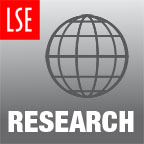 LSE Research channel | VideoThe 2024 Indonesian election: from Widodo to Subianto?Contributor(s): | With a population of 275 million, Indonesia is the world's third largest democracy and what happens in its 2024 election is really important. Prof John Sidel, Director of Saw Swee Hock Southeast Asia Centre at LSE, explains Indonesia's trajectory as a stable and consolidated democracy over the last 25 years and what the future likely holds.
Explore our dedicated hub showcasing LSE research and commentary on global politics in a year of elections: https://www.lse.ac.uk/Research/global-politics2024-02-1902 min
LSE Research channel | VideoThe 2024 Indonesian election: from Widodo to Subianto?Contributor(s): | With a population of 275 million, Indonesia is the world's third largest democracy and what happens in its 2024 election is really important. Prof John Sidel, Director of Saw Swee Hock Southeast Asia Centre at LSE, explains Indonesia's trajectory as a stable and consolidated democracy over the last 25 years and what the future likely holds.
Explore our dedicated hub showcasing LSE research and commentary on global politics in a year of elections: https://www.lse.ac.uk/Research/global-politics2024-02-1902 min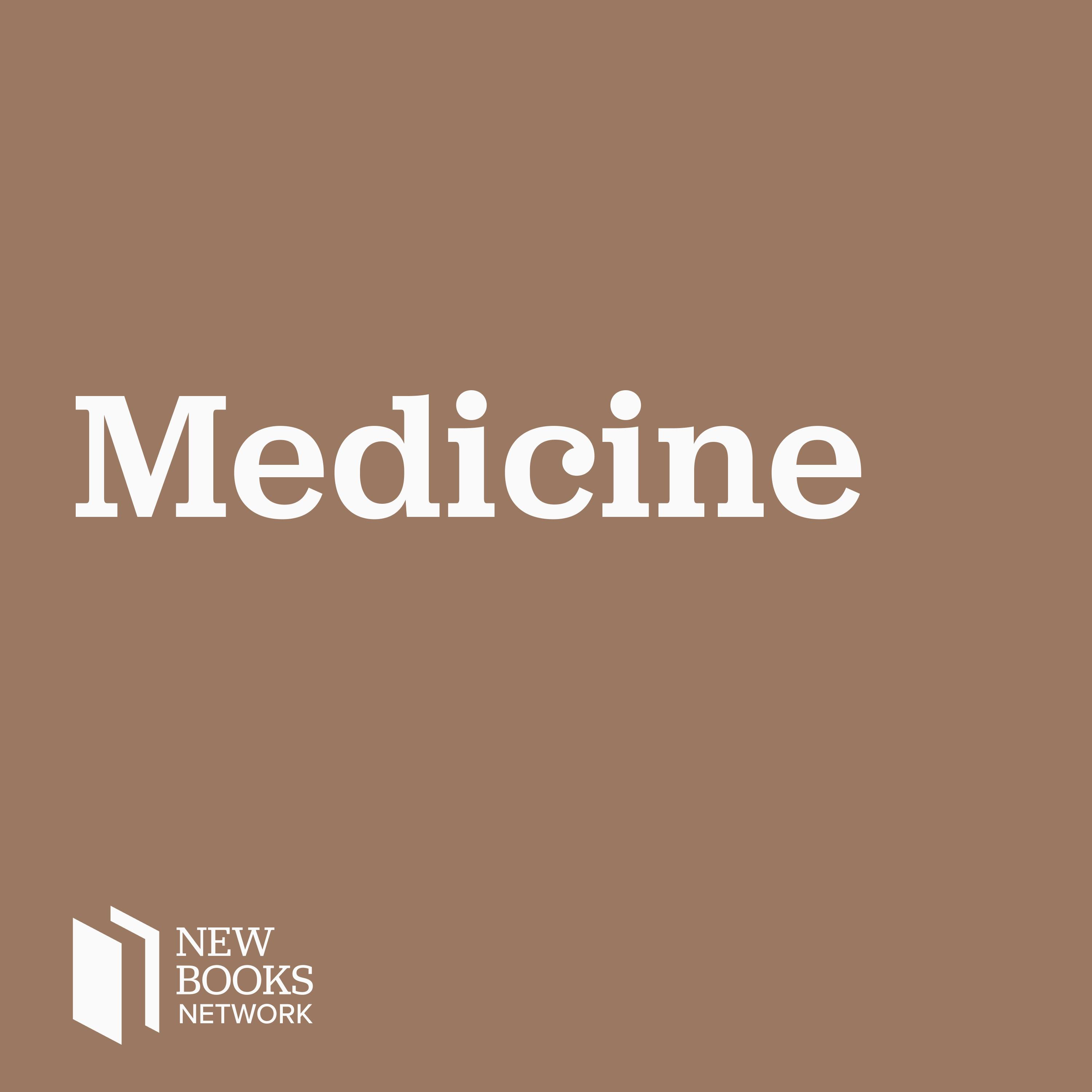 New Books in MedicineHyun Bang Shin et al., "COVID-19 in Southeast Asia: Insights for a Post-pandemic World" (Ubiquity Press, 2021)COVID-19 in Southeast Asia: Insights for a Post-pandemic World (Ubiquity Press, 2021) brings together an ensemble of social scientists who offer critical reflections on how the pandemic was experienced in the region.It interrogates dominants narratives of Covid-19’s legacies and invites readers to reflect of what it means to return to ‘normal’ in contexts marked by inequalities, selective policy interventions, and invisibilised experiences of marginalised communities.The book is structured around three themes: (1) urbanisation, digital infrastructures, economies, and the environment; (2) migrants, (im)mobilities, and borders; and (3) collective action, communities, and mutual action. Each chapter offers a disti...2023-10-1532 min
New Books in MedicineHyun Bang Shin et al., "COVID-19 in Southeast Asia: Insights for a Post-pandemic World" (Ubiquity Press, 2021)COVID-19 in Southeast Asia: Insights for a Post-pandemic World (Ubiquity Press, 2021) brings together an ensemble of social scientists who offer critical reflections on how the pandemic was experienced in the region.It interrogates dominants narratives of Covid-19’s legacies and invites readers to reflect of what it means to return to ‘normal’ in contexts marked by inequalities, selective policy interventions, and invisibilised experiences of marginalised communities.The book is structured around three themes: (1) urbanisation, digital infrastructures, economies, and the environment; (2) migrants, (im)mobilities, and borders; and (3) collective action, communities, and mutual action. Each chapter offers a disti...2023-10-1532 min New Books In Public HealthHyun Bang Shin et al., "COVID-19 in Southeast Asia: Insights for a Post-pandemic World" (Ubiquity Press, 2021)COVID-19 in Southeast Asia: Insights for a Post-pandemic World (Ubiquity Press, 2021) brings together an ensemble of social scientists who offer critical reflections on how the pandemic was experienced in the region.It interrogates dominants narratives of Covid-19’s legacies and invites readers to reflect of what it means to return to ‘normal’ in contexts marked by inequalities, selective policy interventions, and invisibilised experiences of marginalised communities.The book is structured around three themes: (1) urbanisation, digital infrastructures, economies, and the environment; (2) migrants, (im)mobilities, and borders; and (3) collective action, communities, and mutual action. Each chapter offers a disti...2023-10-1532 min
New Books In Public HealthHyun Bang Shin et al., "COVID-19 in Southeast Asia: Insights for a Post-pandemic World" (Ubiquity Press, 2021)COVID-19 in Southeast Asia: Insights for a Post-pandemic World (Ubiquity Press, 2021) brings together an ensemble of social scientists who offer critical reflections on how the pandemic was experienced in the region.It interrogates dominants narratives of Covid-19’s legacies and invites readers to reflect of what it means to return to ‘normal’ in contexts marked by inequalities, selective policy interventions, and invisibilised experiences of marginalised communities.The book is structured around three themes: (1) urbanisation, digital infrastructures, economies, and the environment; (2) migrants, (im)mobilities, and borders; and (3) collective action, communities, and mutual action. Each chapter offers a disti...2023-10-1532 min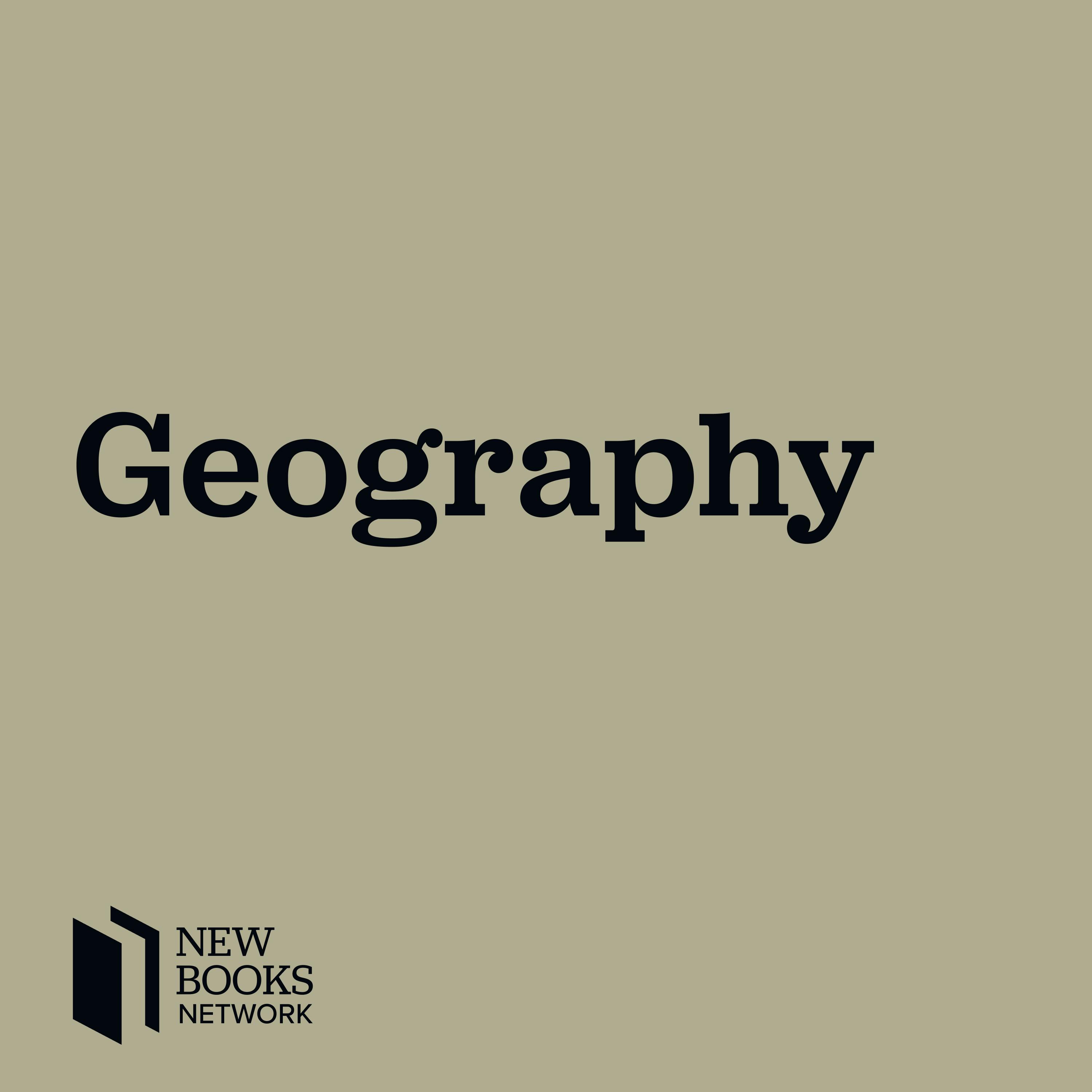 New Books in GeographyHyun Bang Shin et al., "COVID-19 in Southeast Asia: Insights for a Post-pandemic World" (Ubiquity Press, 2021)COVID-19 in Southeast Asia: Insights for a Post-pandemic World (Ubiquity Press, 2021) brings together an ensemble of social scientists who offer critical reflections on how the pandemic was experienced in the region.It interrogates dominants narratives of Covid-19’s legacies and invites readers to reflect of what it means to return to ‘normal’ in contexts marked by inequalities, selective policy interventions, and invisibilised experiences of marginalised communities.The book is structured around three themes: (1) urbanisation, digital infrastructures, economies, and the environment; (2) migrants, (im)mobilities, and borders; and (3) collective action, communities, and mutual action. Each chapter offers a disti...2023-10-1532 min
New Books in GeographyHyun Bang Shin et al., "COVID-19 in Southeast Asia: Insights for a Post-pandemic World" (Ubiquity Press, 2021)COVID-19 in Southeast Asia: Insights for a Post-pandemic World (Ubiquity Press, 2021) brings together an ensemble of social scientists who offer critical reflections on how the pandemic was experienced in the region.It interrogates dominants narratives of Covid-19’s legacies and invites readers to reflect of what it means to return to ‘normal’ in contexts marked by inequalities, selective policy interventions, and invisibilised experiences of marginalised communities.The book is structured around three themes: (1) urbanisation, digital infrastructures, economies, and the environment; (2) migrants, (im)mobilities, and borders; and (3) collective action, communities, and mutual action. Each chapter offers a disti...2023-10-1532 min New Books in Southeast Asian StudiesHyun Bang Shin et al., "COVID-19 in Southeast Asia: Insights for a Post-pandemic World" (Ubiquity Press, 2021)COVID-19 in Southeast Asia: Insights for a Post-pandemic World (Ubiquity Press, 2021) brings together an ensemble of social scientists who offer critical reflections on how the pandemic was experienced in the region.It interrogates dominants narratives of Covid-19’s legacies and invites readers to reflect of what it means to return to ‘normal’ in contexts marked by inequalities, selective policy interventions, and invisibilised experiences of marginalised communities.The book is structured around three themes: (1) urbanisation, digital infrastructures, economies, and the environment; (2) migrants, (im)mobilities, and borders; and (3) collective action, communities, and mutual action. Each chapter offers a disti...2023-10-1532 min
New Books in Southeast Asian StudiesHyun Bang Shin et al., "COVID-19 in Southeast Asia: Insights for a Post-pandemic World" (Ubiquity Press, 2021)COVID-19 in Southeast Asia: Insights for a Post-pandemic World (Ubiquity Press, 2021) brings together an ensemble of social scientists who offer critical reflections on how the pandemic was experienced in the region.It interrogates dominants narratives of Covid-19’s legacies and invites readers to reflect of what it means to return to ‘normal’ in contexts marked by inequalities, selective policy interventions, and invisibilised experiences of marginalised communities.The book is structured around three themes: (1) urbanisation, digital infrastructures, economies, and the environment; (2) migrants, (im)mobilities, and borders; and (3) collective action, communities, and mutual action. Each chapter offers a disti...2023-10-1532 min Consider ThisConsider This: Urban Resilience - Urbanisation, Gentrification & InequalityWhat are the social, economic, and cultural consequences that arise from urbanisation? Is it possible for modern cities to reconcile progress, gentrification, and resilience? On this episode of #ConsiderThis Melisa Idris speaks to Hyun Bang Shin, Professor of Geography and Urban Studies at the London School of Economics and Political Science in the UK. He is also Director of the LSE’s Saw Swee Hock Southeast Asia Centre.
2023-06-1627 min
Consider ThisConsider This: Urban Resilience - Urbanisation, Gentrification & InequalityWhat are the social, economic, and cultural consequences that arise from urbanisation? Is it possible for modern cities to reconcile progress, gentrification, and resilience? On this episode of #ConsiderThis Melisa Idris speaks to Hyun Bang Shin, Professor of Geography and Urban Studies at the London School of Economics and Political Science in the UK. He is also Director of the LSE’s Saw Swee Hock Southeast Asia Centre.
2023-06-1627 min The Breakfast GrilleThe Global South's Prosperity PuzzleIn light of global economic headwinds resulting from the Covid-19 pandemic and geopolitical tensions, what does this mean for developing countries' growth prospects? Prof. Robert Wade of LSE weighs in on how countries could use industrial policy to spur economic development amid the challenging environment, and why free markets are not an automatic recipe for prosperity for the Global South. Prof. Wade is a speaker at the Malaysia Futures 2023 forum jointly organised by the LSE Saw Swee Hock Southeast Asia Centre (SEAC) and Khazanah Research Institute (KRI).Image by: Shutterstock2023-05-2823 min
The Breakfast GrilleThe Global South's Prosperity PuzzleIn light of global economic headwinds resulting from the Covid-19 pandemic and geopolitical tensions, what does this mean for developing countries' growth prospects? Prof. Robert Wade of LSE weighs in on how countries could use industrial policy to spur economic development amid the challenging environment, and why free markets are not an automatic recipe for prosperity for the Global South. Prof. Wade is a speaker at the Malaysia Futures 2023 forum jointly organised by the LSE Saw Swee Hock Southeast Asia Centre (SEAC) and Khazanah Research Institute (KRI).Image by: Shutterstock2023-05-2823 min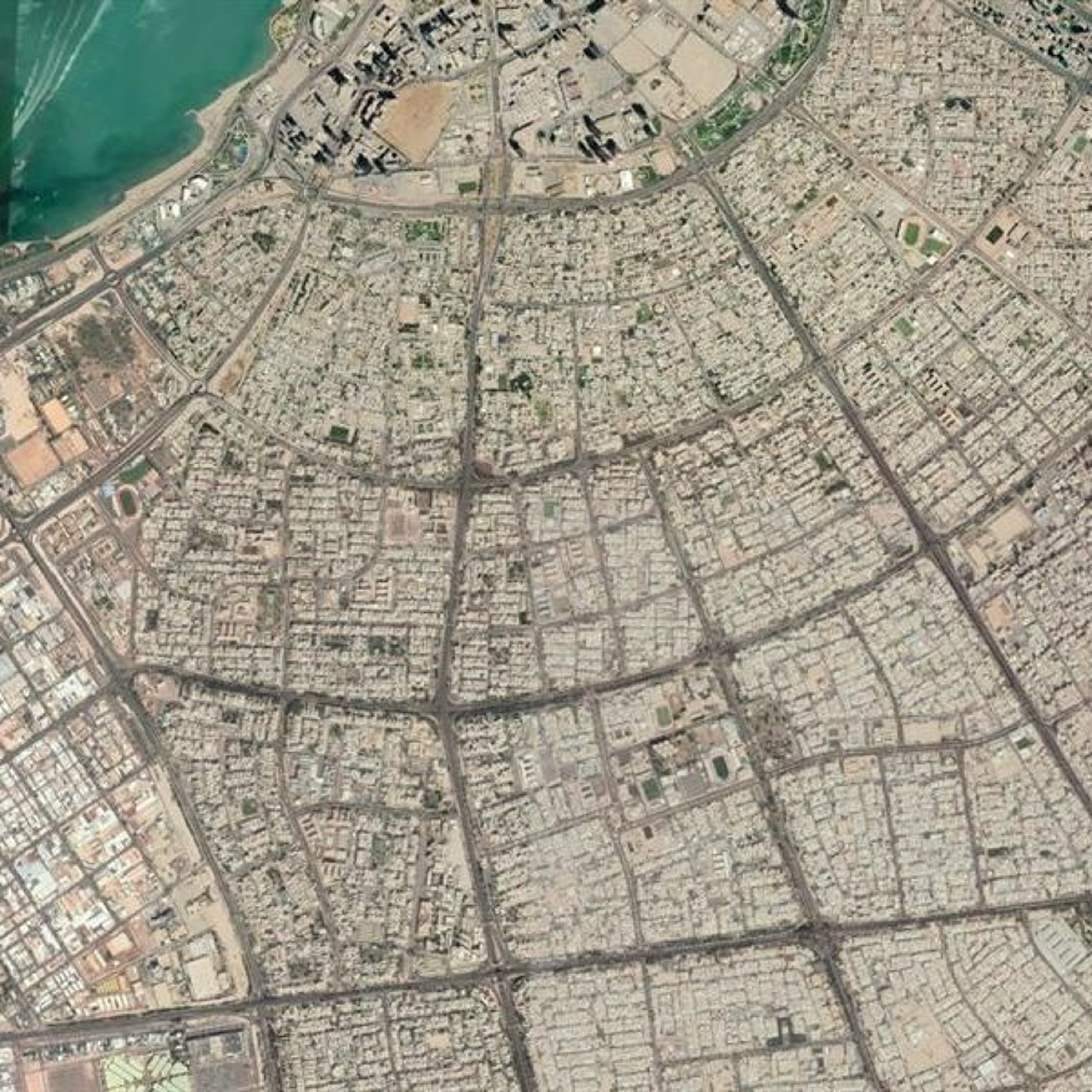 LSE Middle East Centre PodcastsFuture-Proofing Kuwait: Urban Policymaking in the 21st Century (Webinar)This webinar presented the results of two LSE Kuwait Programme research projects:
1. Urban Governance and Spatial Patterns in Kuwait: Exploring the Links Between the Physical and the Socioeconomic - Dhari Alrasheed and Nuno F. da Cruz
2. Can Smart Cities Solve the Housing Crisis? A Study on Korea-Kuwait Partnership for a New Smart City in Kuwait - Hyun Bang Shin and Do Young Oh
Nuno F. da Cruz is Assistant Professorial Research Fellow at LSE Cities, London School of Economics and Political Science. His work on urban and metropolitan governance is multidisciplinary in nature and global in reach, engaging with a...2022-03-181h 23
LSE Middle East Centre PodcastsFuture-Proofing Kuwait: Urban Policymaking in the 21st Century (Webinar)This webinar presented the results of two LSE Kuwait Programme research projects:
1. Urban Governance and Spatial Patterns in Kuwait: Exploring the Links Between the Physical and the Socioeconomic - Dhari Alrasheed and Nuno F. da Cruz
2. Can Smart Cities Solve the Housing Crisis? A Study on Korea-Kuwait Partnership for a New Smart City in Kuwait - Hyun Bang Shin and Do Young Oh
Nuno F. da Cruz is Assistant Professorial Research Fellow at LSE Cities, London School of Economics and Political Science. His work on urban and metropolitan governance is multidisciplinary in nature and global in reach, engaging with a...2022-03-181h 23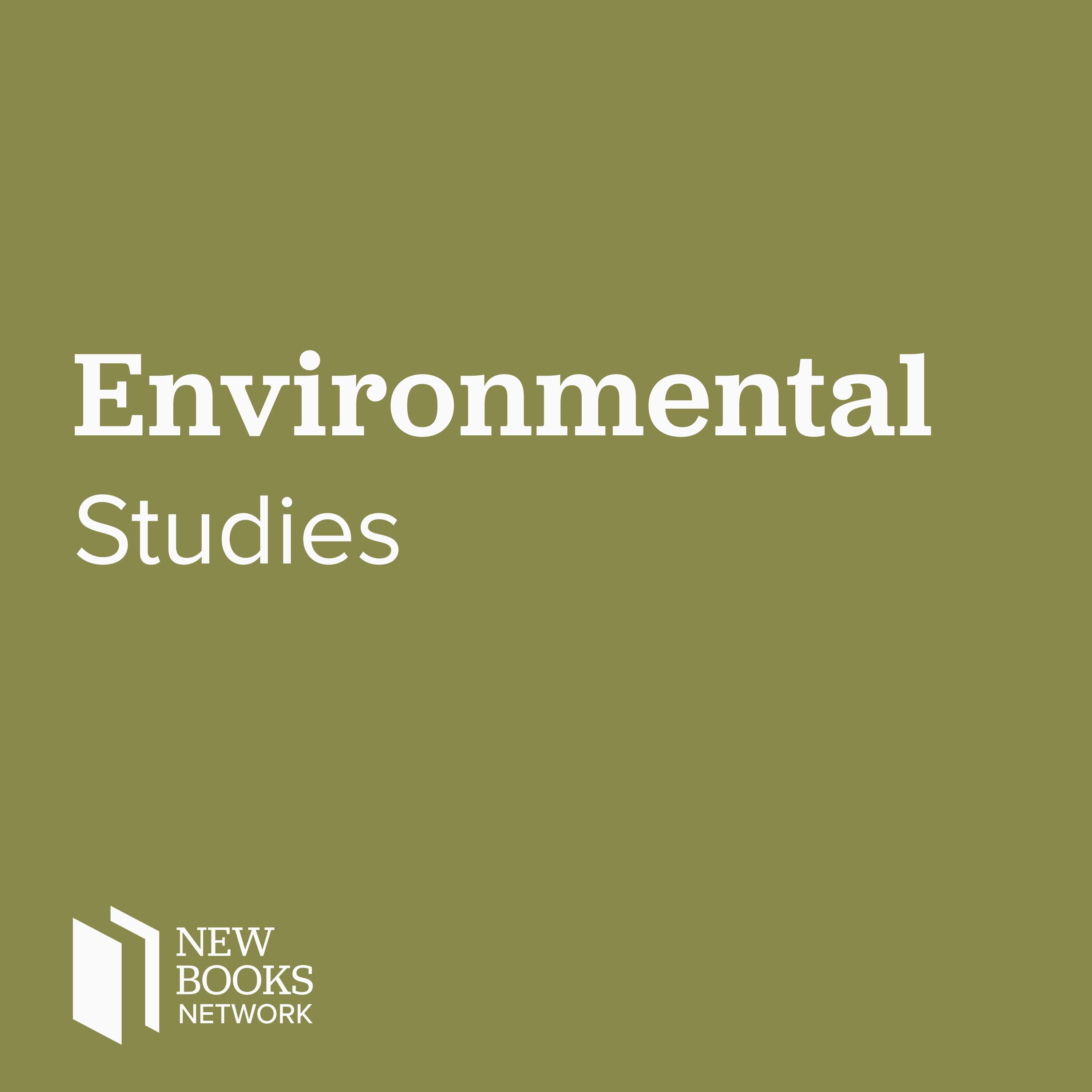 New Books in Environmental StudiesNegotiated Environmentalism: Influences of Domestic Interest Groups in China’s Environmental Foreign RelationsCOP26 was billed as the make or break event in the fight against climate change. In conversation with Quynh Le Vo, Sharon Seah, coordinator of the ISEAS-Yusof Ishak Institute’s Climate Change in Southeast Asia Programme, discusses Southeast Asian countries’ key priorities going into the conference and the commitments they made in Glasgow, including climate finance, exit from coal and ending deforestation. She also reveals some insights from the annual Southeast Asia Climate Survey reports, such as perceptions in the region of the US as a climate leader and the (dis)connects between climate action and COVID-19 responses.Sh...2021-12-0627 min
New Books in Environmental StudiesNegotiated Environmentalism: Influences of Domestic Interest Groups in China’s Environmental Foreign RelationsCOP26 was billed as the make or break event in the fight against climate change. In conversation with Quynh Le Vo, Sharon Seah, coordinator of the ISEAS-Yusof Ishak Institute’s Climate Change in Southeast Asia Programme, discusses Southeast Asian countries’ key priorities going into the conference and the commitments they made in Glasgow, including climate finance, exit from coal and ending deforestation. She also reveals some insights from the annual Southeast Asia Climate Survey reports, such as perceptions in the region of the US as a climate leader and the (dis)connects between climate action and COVID-19 responses.Sh...2021-12-0627 min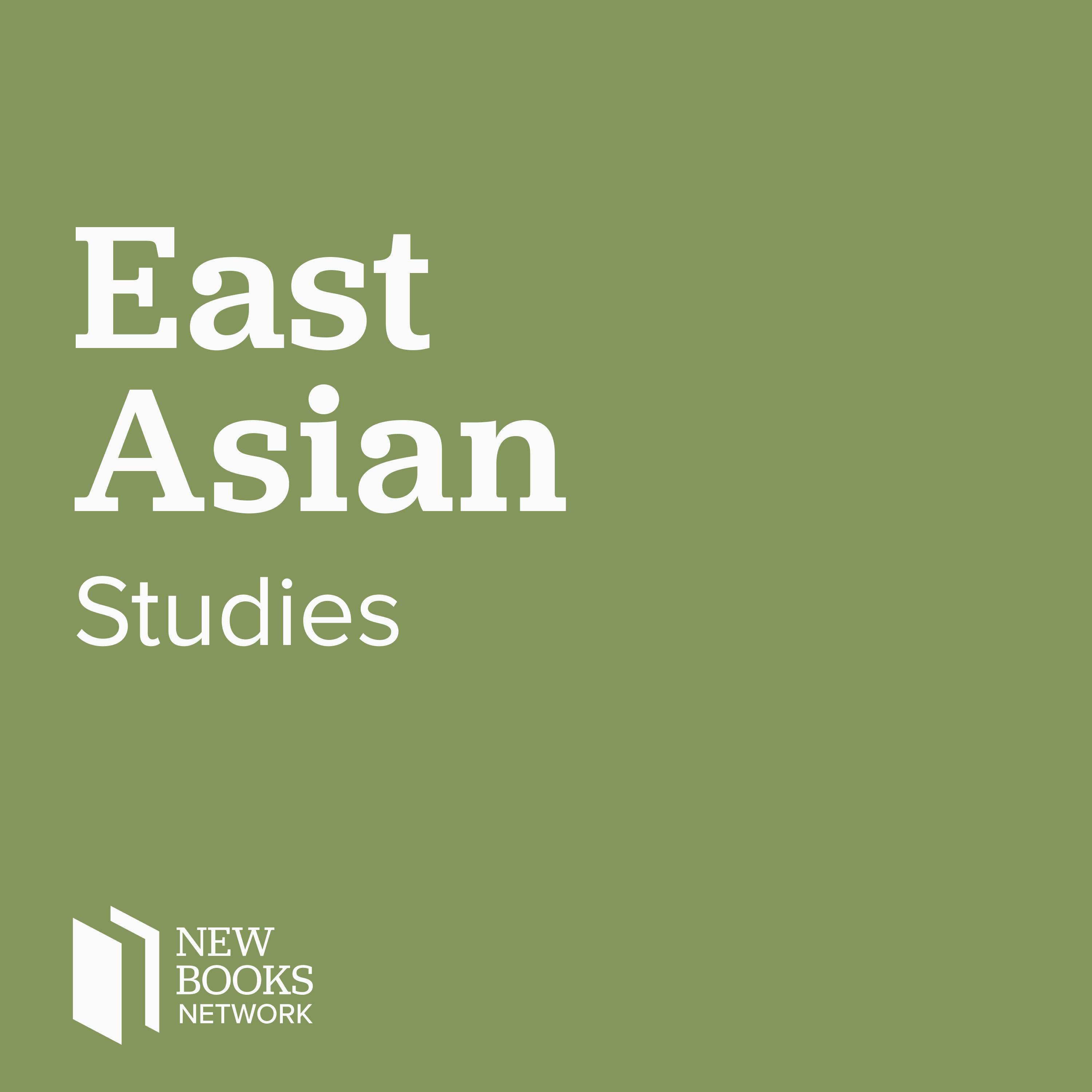 New Books in East Asian StudiesNegotiated Environmentalism: Influences of Domestic Interest Groups in China’s Environmental Foreign RelationsCOP26 was billed as the make or break event in the fight against climate change. In conversation with Quynh Le Vo, Sharon Seah, coordinator of the ISEAS-Yusof Ishak Institute’s Climate Change in Southeast Asia Programme, discusses Southeast Asian countries’ key priorities going into the conference and the commitments they made in Glasgow, including climate finance, exit from coal and ending deforestation. She also reveals some insights from the annual Southeast Asia Climate Survey reports, such as perceptions in the region of the US as a climate leader and the (dis)connects between climate action and COVID-19 responses.Sh...2021-12-0627 min
New Books in East Asian StudiesNegotiated Environmentalism: Influences of Domestic Interest Groups in China’s Environmental Foreign RelationsCOP26 was billed as the make or break event in the fight against climate change. In conversation with Quynh Le Vo, Sharon Seah, coordinator of the ISEAS-Yusof Ishak Institute’s Climate Change in Southeast Asia Programme, discusses Southeast Asian countries’ key priorities going into the conference and the commitments they made in Glasgow, including climate finance, exit from coal and ending deforestation. She also reveals some insights from the annual Southeast Asia Climate Survey reports, such as perceptions in the region of the US as a climate leader and the (dis)connects between climate action and COVID-19 responses.Sh...2021-12-0627 min New Books in Southeast Asian StudiesCOP26 from a Southeast Asian PerspectiveCOP26 was billed as the make or break event in the fight against climate change. In conversation with Quynh Le Vo, Sharon Seah, coordinator of the ISEAS-Yusof Ishak Institute’s Climate Change in Southeast Asia Programme, discusses Southeast Asian countries’ key priorities going into the conference and the commitments they made in Glasgow, including climate finance, exit from coal and ending deforestation. She also reveals some insights from the annual Southeast Asia Climate Survey reports, such as perceptions in the region of the US as a climate leader and the (dis)connects between climate action and COVID-19 responses.Sh...2021-12-0627 min
New Books in Southeast Asian StudiesCOP26 from a Southeast Asian PerspectiveCOP26 was billed as the make or break event in the fight against climate change. In conversation with Quynh Le Vo, Sharon Seah, coordinator of the ISEAS-Yusof Ishak Institute’s Climate Change in Southeast Asia Programme, discusses Southeast Asian countries’ key priorities going into the conference and the commitments they made in Glasgow, including climate finance, exit from coal and ending deforestation. She also reveals some insights from the annual Southeast Asia Climate Survey reports, such as perceptions in the region of the US as a climate leader and the (dis)connects between climate action and COVID-19 responses.Sh...2021-12-0627 min New Books in World AffairsNegotiated Environmentalism: Influences of Domestic Interest Groups in China’s Environmental Foreign RelationsCOP26 was billed as the make or break event in the fight against climate change. In conversation with Quynh Le Vo, Sharon Seah, coordinator of the ISEAS-Yusof Ishak Institute’s Climate Change in Southeast Asia Programme, discusses Southeast Asian countries’ key priorities going into the conference and the commitments they made in Glasgow, including climate finance, exit from coal and ending deforestation. She also reveals some insights from the annual Southeast Asia Climate Survey reports, such as perceptions in the region of the US as a climate leader and the (dis)connects between climate action and COVID-19 responses.
Sharon Seah is S...2021-12-0627 min
New Books in World AffairsNegotiated Environmentalism: Influences of Domestic Interest Groups in China’s Environmental Foreign RelationsCOP26 was billed as the make or break event in the fight against climate change. In conversation with Quynh Le Vo, Sharon Seah, coordinator of the ISEAS-Yusof Ishak Institute’s Climate Change in Southeast Asia Programme, discusses Southeast Asian countries’ key priorities going into the conference and the commitments they made in Glasgow, including climate finance, exit from coal and ending deforestation. She also reveals some insights from the annual Southeast Asia Climate Survey reports, such as perceptions in the region of the US as a climate leader and the (dis)connects between climate action and COVID-19 responses.
Sharon Seah is S...2021-12-0627 min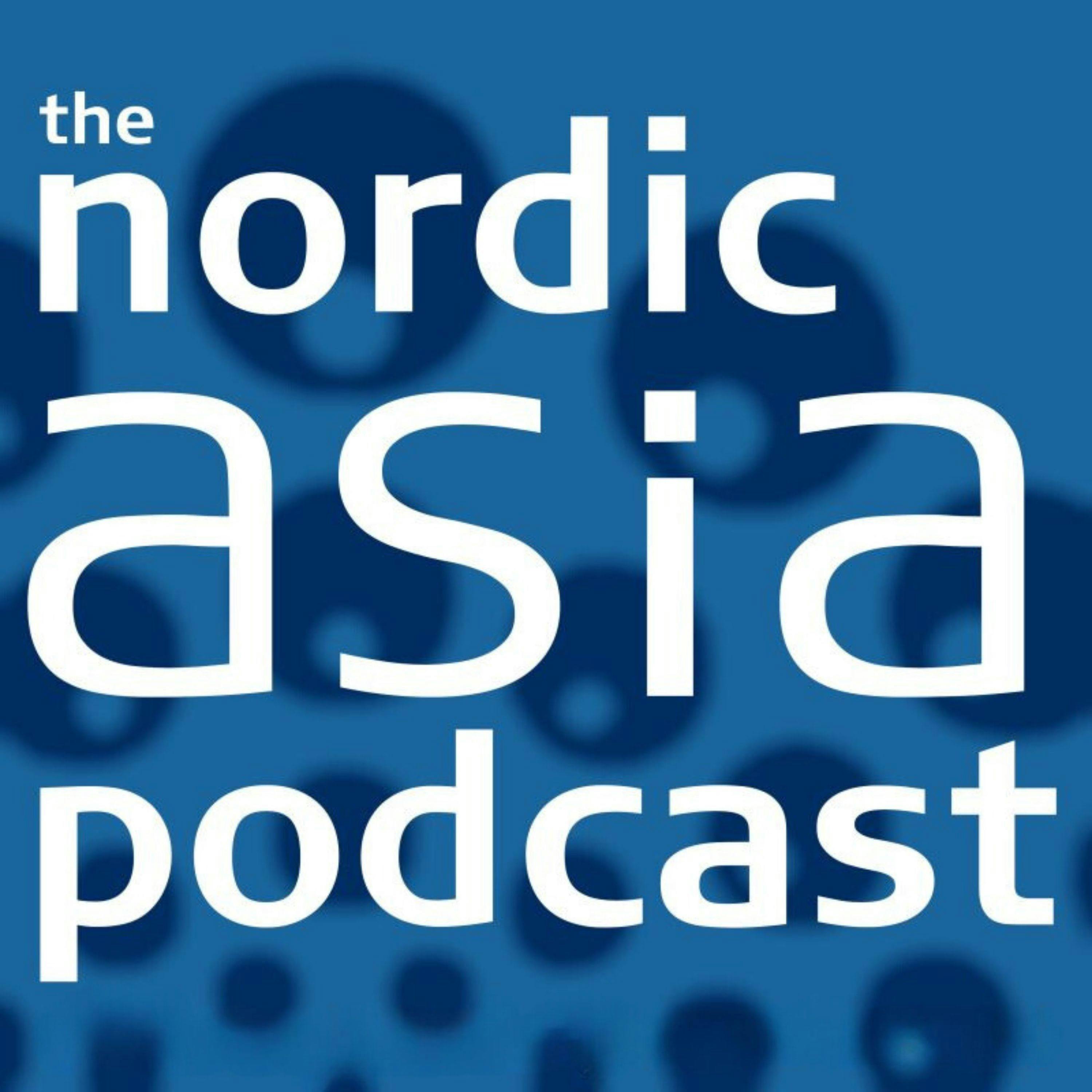 The Nordic Asia PodcastCOP26 from a Southeast Asian PerspectiveCOP26 was billed as the make or break event in the fight against climate change. In conversation with Quynh Le Vo, Sharon Seah, coordinator of the ISEAS-Yusof Ishak Institute’s Climate Change in Southeast Asia Programme, discusses Southeast Asian countries’ key priorities going into the conference and the commitments they made in Glasgow, including climate finance, exit from coal and ending deforestation. She also reveals some insights from the annual Southeast Asia Climate Survey reports, such as perceptions in the region of the US as a climate leader and the (dis)connects between climate action and COVID-19 responses.Sh...2021-12-0627 min
The Nordic Asia PodcastCOP26 from a Southeast Asian PerspectiveCOP26 was billed as the make or break event in the fight against climate change. In conversation with Quynh Le Vo, Sharon Seah, coordinator of the ISEAS-Yusof Ishak Institute’s Climate Change in Southeast Asia Programme, discusses Southeast Asian countries’ key priorities going into the conference and the commitments they made in Glasgow, including climate finance, exit from coal and ending deforestation. She also reveals some insights from the annual Southeast Asia Climate Survey reports, such as perceptions in the region of the US as a climate leader and the (dis)connects between climate action and COVID-19 responses.Sh...2021-12-0627 min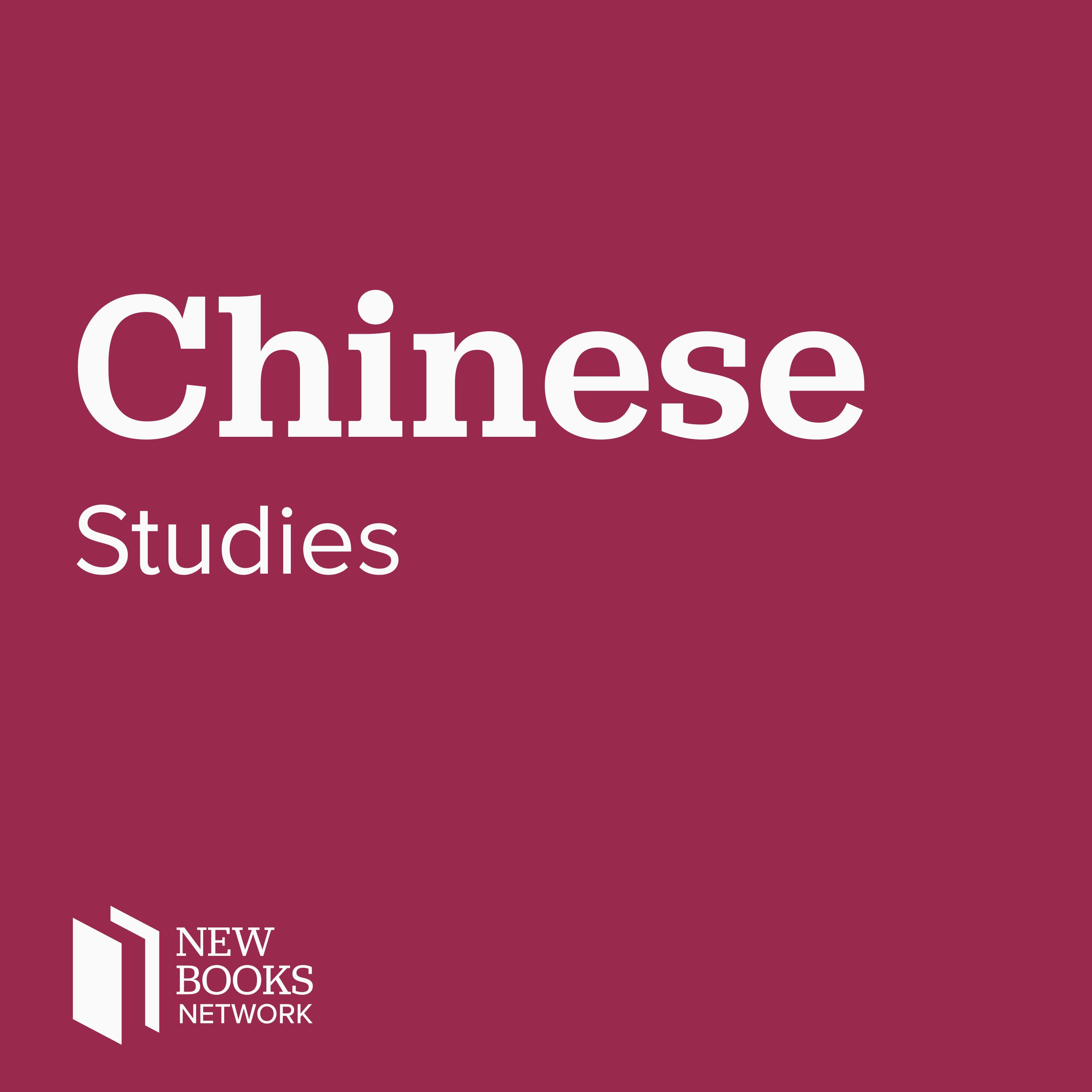 New Books in Chinese StudiesNegotiated Environmentalism: Influences of Domestic Interest Groups in China’s Environmental Foreign RelationsCOP26 was billed as the make or break event in the fight against climate change. In conversation with Quynh Le Vo, Sharon Seah, coordinator of the ISEAS-Yusof Ishak Institute’s Climate Change in Southeast Asia Programme, discusses Southeast Asian countries’ key priorities going into the conference and the commitments they made in Glasgow, including climate finance, exit from coal and ending deforestation. She also reveals some insights from the annual Southeast Asia Climate Survey reports, such as perceptions in the region of the US as a climate leader and the (dis)connects between climate action and COVID-19 responses.Sh...2021-12-0627 min
New Books in Chinese StudiesNegotiated Environmentalism: Influences of Domestic Interest Groups in China’s Environmental Foreign RelationsCOP26 was billed as the make or break event in the fight against climate change. In conversation with Quynh Le Vo, Sharon Seah, coordinator of the ISEAS-Yusof Ishak Institute’s Climate Change in Southeast Asia Programme, discusses Southeast Asian countries’ key priorities going into the conference and the commitments they made in Glasgow, including climate finance, exit from coal and ending deforestation. She also reveals some insights from the annual Southeast Asia Climate Survey reports, such as perceptions in the region of the US as a climate leader and the (dis)connects between climate action and COVID-19 responses.Sh...2021-12-0627 min New Books in Southeast Asian StudiesKaren Sanctuaries: Memory, Biodiversity and Political SovereigntySeeds, plants and food can act as repositories of memory and identity, thus countering the alienation caused by displacement. How does this manifest in the case of Karen refugee communities across the world holding on to a connection to their homeland in Myanmar? And how is the Karen people’s struggle for political sovereignty connected to global biodiversity and climate change issues? Terese Gagnon discusses these questions, as well as the role of the Karen territory as a biodiversity and political refuge, and how this has changed since the military coup in Myanmar in February 2021.Terese Gagnon is...2021-08-1326 min
New Books in Southeast Asian StudiesKaren Sanctuaries: Memory, Biodiversity and Political SovereigntySeeds, plants and food can act as repositories of memory and identity, thus countering the alienation caused by displacement. How does this manifest in the case of Karen refugee communities across the world holding on to a connection to their homeland in Myanmar? And how is the Karen people’s struggle for political sovereignty connected to global biodiversity and climate change issues? Terese Gagnon discusses these questions, as well as the role of the Karen territory as a biodiversity and political refuge, and how this has changed since the military coup in Myanmar in February 2021.Terese Gagnon is...2021-08-1326 min The Nordic Asia PodcastKaren Sanctuaries: Memory, Biodiversity and Political SovereigntySeeds, plants and food can act as repositories of memory and identity, thus countering the alienation caused by displacement. How does this manifest in the case of Karen refugee communities across the world holding on to a connection to their homeland in Myanmar? And how is the Karen people’s struggle for political sovereignty connected to global biodiversity and climate change issues? Terese Gagnon discusses these questions, as well as the role of the Karen territory as a biodiversity and political refuge, and how this has changed since the military coup in Myanmar in February 2021.Terese Gagnon is...2021-08-1326 min
The Nordic Asia PodcastKaren Sanctuaries: Memory, Biodiversity and Political SovereigntySeeds, plants and food can act as repositories of memory and identity, thus countering the alienation caused by displacement. How does this manifest in the case of Karen refugee communities across the world holding on to a connection to their homeland in Myanmar? And how is the Karen people’s struggle for political sovereignty connected to global biodiversity and climate change issues? Terese Gagnon discusses these questions, as well as the role of the Karen territory as a biodiversity and political refuge, and how this has changed since the military coup in Myanmar in February 2021.Terese Gagnon is...2021-08-1326 min New Books in Environmental StudiesKaren Sanctuaries: Memory, Biodiversity and Political SovereigntySeeds, plants and food can act as repositories of memory and identity, thus countering the alienation caused by displacement. How does this manifest in the case of Karen refugee communities across the world holding on to a connection to their homeland in Myanmar? And how is the Karen people’s struggle for political sovereignty connected to global biodiversity and climate change issues? Terese Gagnon discusses these questions, as well as the role of the Karen territory as a biodiversity and political refuge, and how this has changed since the military coup in Myanmar in February 2021.Terese Gagnon is...2021-08-1326 min
New Books in Environmental StudiesKaren Sanctuaries: Memory, Biodiversity and Political SovereigntySeeds, plants and food can act as repositories of memory and identity, thus countering the alienation caused by displacement. How does this manifest in the case of Karen refugee communities across the world holding on to a connection to their homeland in Myanmar? And how is the Karen people’s struggle for political sovereignty connected to global biodiversity and climate change issues? Terese Gagnon discusses these questions, as well as the role of the Karen territory as a biodiversity and political refuge, and how this has changed since the military coup in Myanmar in February 2021.Terese Gagnon is...2021-08-1326 min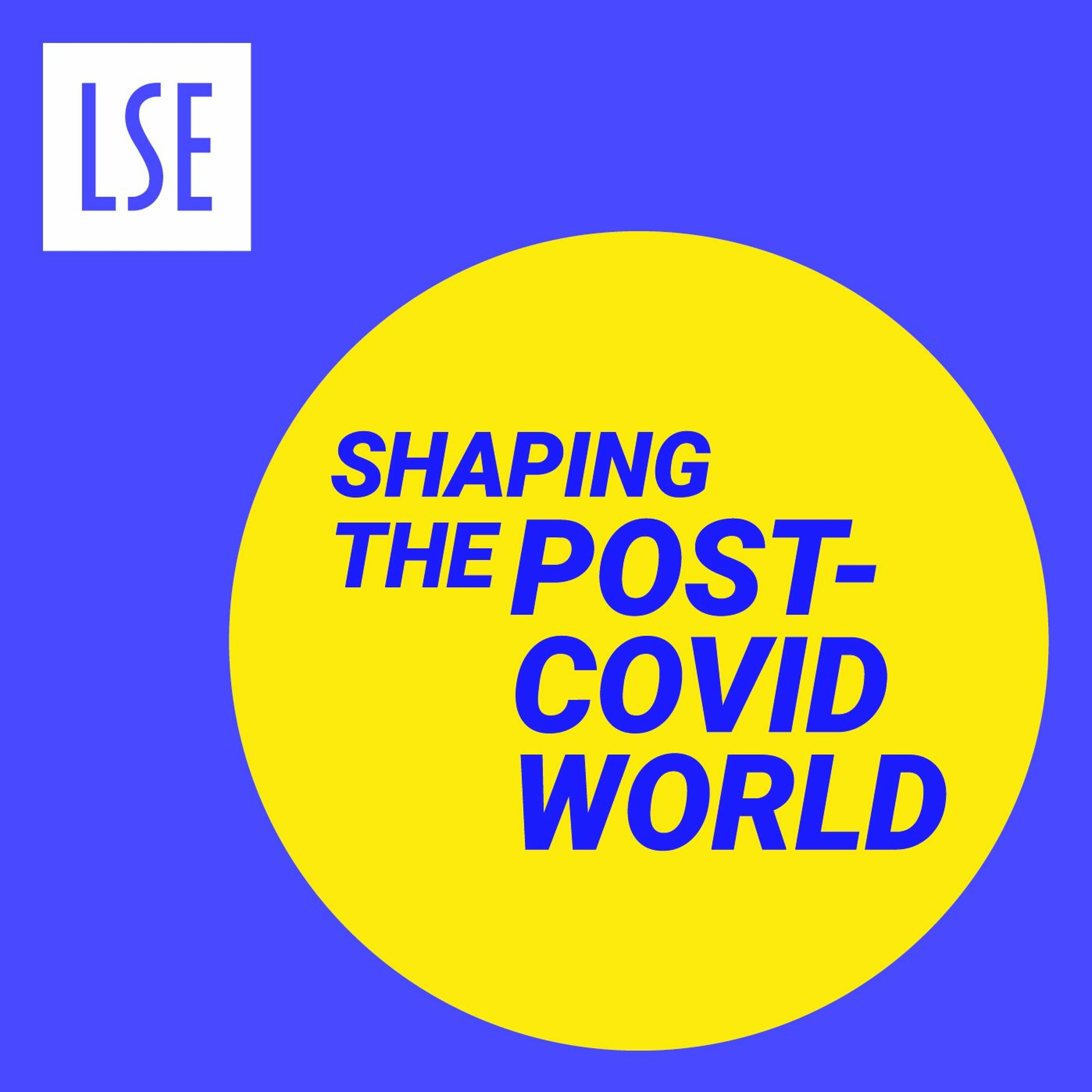 LSE PodcastsLife in a Post-COVID World: learning from Southeast AsiaAlthough the distinctive outcomes of COVID-19 in Southeast Asia are only now becoming clear, we expect that they can become the basis for innovative and impactful ideas that will matter for neighbouring regions and the world.
Leading thinkers on Southeast Asia reflect on the lessons of COVID-19 for connectivity, governance, and urbanisation in the region and assess the futures it might foretell for Southeast Asia and the world.
Meet our speakers and chair
Hyun Bang Shin (@urbancommune) is Professor of Geography and Urban Studies, Department of Geography and Environment, and Director of the Saw Swee Hock Southeast Asia Centre at...2021-03-0458 min
LSE PodcastsLife in a Post-COVID World: learning from Southeast AsiaAlthough the distinctive outcomes of COVID-19 in Southeast Asia are only now becoming clear, we expect that they can become the basis for innovative and impactful ideas that will matter for neighbouring regions and the world.
Leading thinkers on Southeast Asia reflect on the lessons of COVID-19 for connectivity, governance, and urbanisation in the region and assess the futures it might foretell for Southeast Asia and the world.
Meet our speakers and chair
Hyun Bang Shin (@urbancommune) is Professor of Geography and Urban Studies, Department of Geography and Environment, and Director of the Saw Swee Hock Southeast Asia Centre at...2021-03-0458 min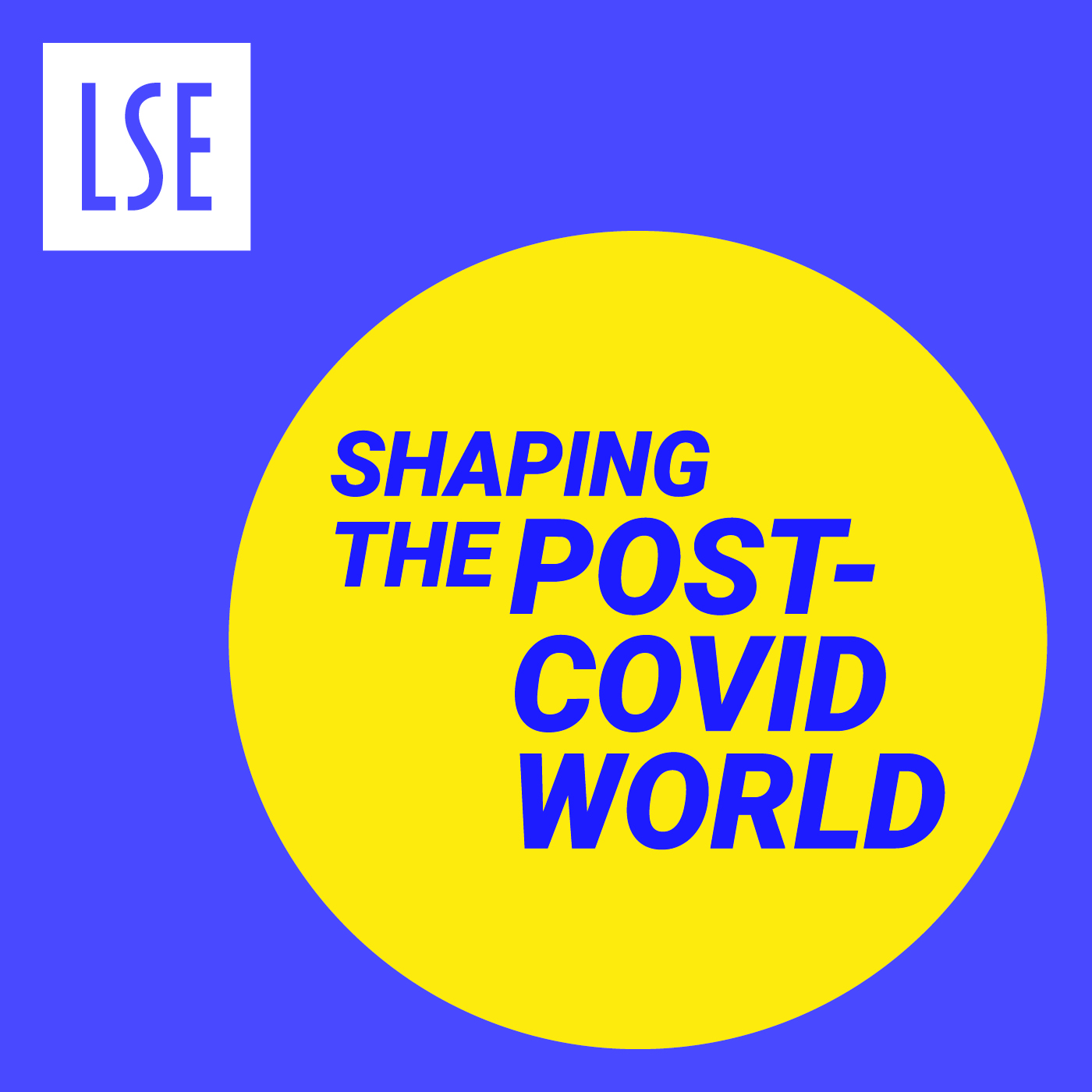 Shaping the Post-COVID WorldLife in a Post-COVID World: learning from Southeast AsiaContributor(s): Professor Hyun Bang Shin, Dr Nicole Curato, Dr Sin Yee Koh, Professor John Sidel | Although the distinctive outcomes of COVID-19 in Southeast Asia are only now becoming clear, we expect that they can become the basis for innovative and impactful ideas that will matter for neighbouring regions and the world.
Leading thinkers on Southeast Asia reflect on the lessons of COVID-19 for connectivity, governance, and urbanisation in the region and assess the futures it might foretell for Southeast Asia and the world.
Meet our speakers and chair
Hyun Bang Shin (@urbancommune) is Professor of Geography and Urban Studies...2021-03-0158 min
Shaping the Post-COVID WorldLife in a Post-COVID World: learning from Southeast AsiaContributor(s): Professor Hyun Bang Shin, Dr Nicole Curato, Dr Sin Yee Koh, Professor John Sidel | Although the distinctive outcomes of COVID-19 in Southeast Asia are only now becoming clear, we expect that they can become the basis for innovative and impactful ideas that will matter for neighbouring regions and the world.
Leading thinkers on Southeast Asia reflect on the lessons of COVID-19 for connectivity, governance, and urbanisation in the region and assess the futures it might foretell for Southeast Asia and the world.
Meet our speakers and chair
Hyun Bang Shin (@urbancommune) is Professor of Geography and Urban Studies...2021-03-0158 min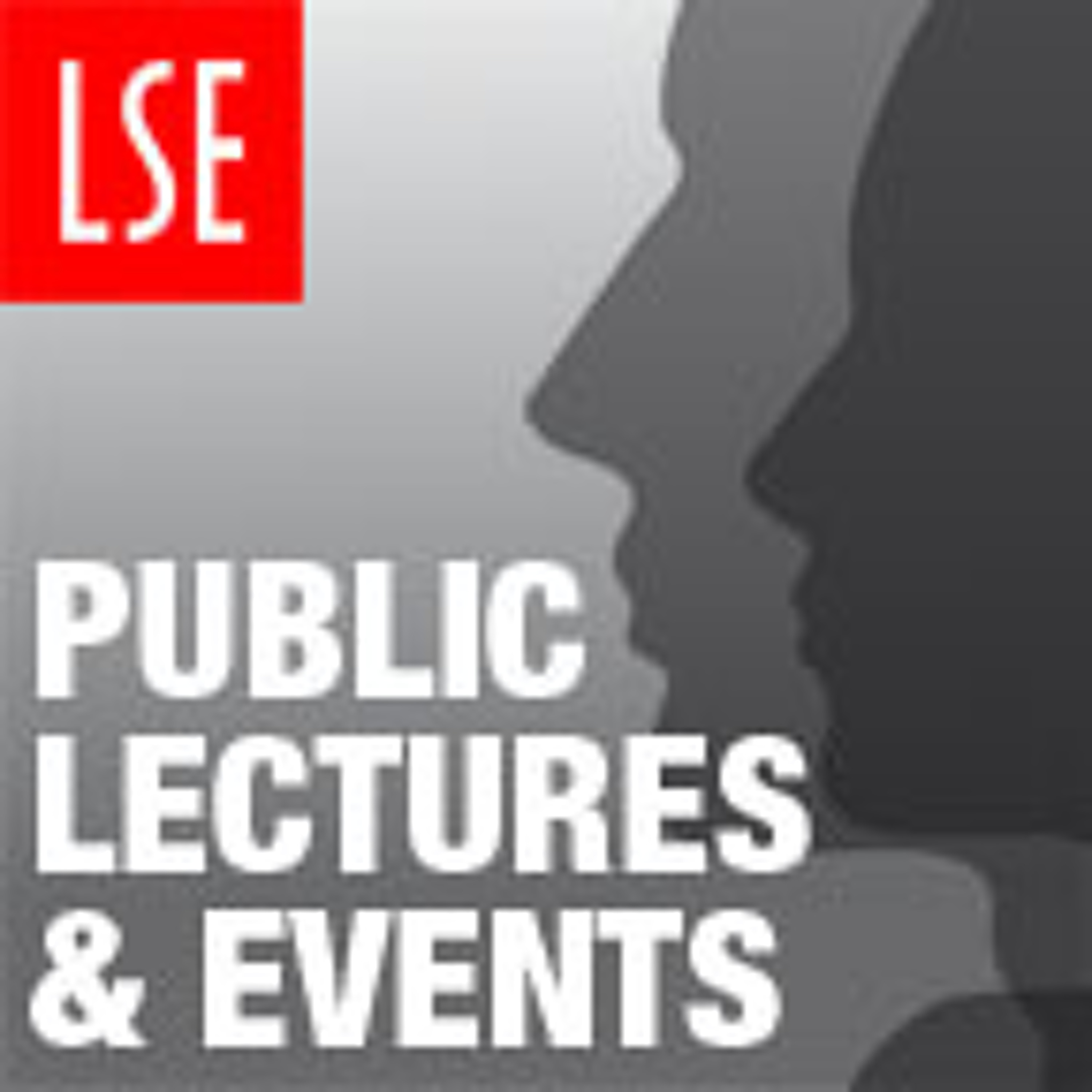 LSE PodcastsPost COVID-19 Futures of the Urbanising World [Audio]Speaker(s): Dr Creighton Connolly, Professor Roger Keil, Dr Deirdre McKay, Dr Rita Padawangi | What is the relationship between urbanisation and infectious disease? How do cities and their hinterlands respond to the COVID-19 pandemic? What is the role of civil society in tackling the livelihood challenges in urban and rural areas during the pandemic? This panel will explore the impact of COVID-19 on changing relationships between cities and their hinterlands in global urbanisation processes, and the position of cities, small towns and rural areas in thinking about post COVID-19 urban futures, with particular emphasis on Southeast Asia. Creighton Connolly (@Creighton88...2020-06-031h 32
LSE PodcastsPost COVID-19 Futures of the Urbanising World [Audio]Speaker(s): Dr Creighton Connolly, Professor Roger Keil, Dr Deirdre McKay, Dr Rita Padawangi | What is the relationship between urbanisation and infectious disease? How do cities and their hinterlands respond to the COVID-19 pandemic? What is the role of civil society in tackling the livelihood challenges in urban and rural areas during the pandemic? This panel will explore the impact of COVID-19 on changing relationships between cities and their hinterlands in global urbanisation processes, and the position of cities, small towns and rural areas in thinking about post COVID-19 urban futures, with particular emphasis on Southeast Asia. Creighton Connolly (@Creighton88...2020-06-031h 32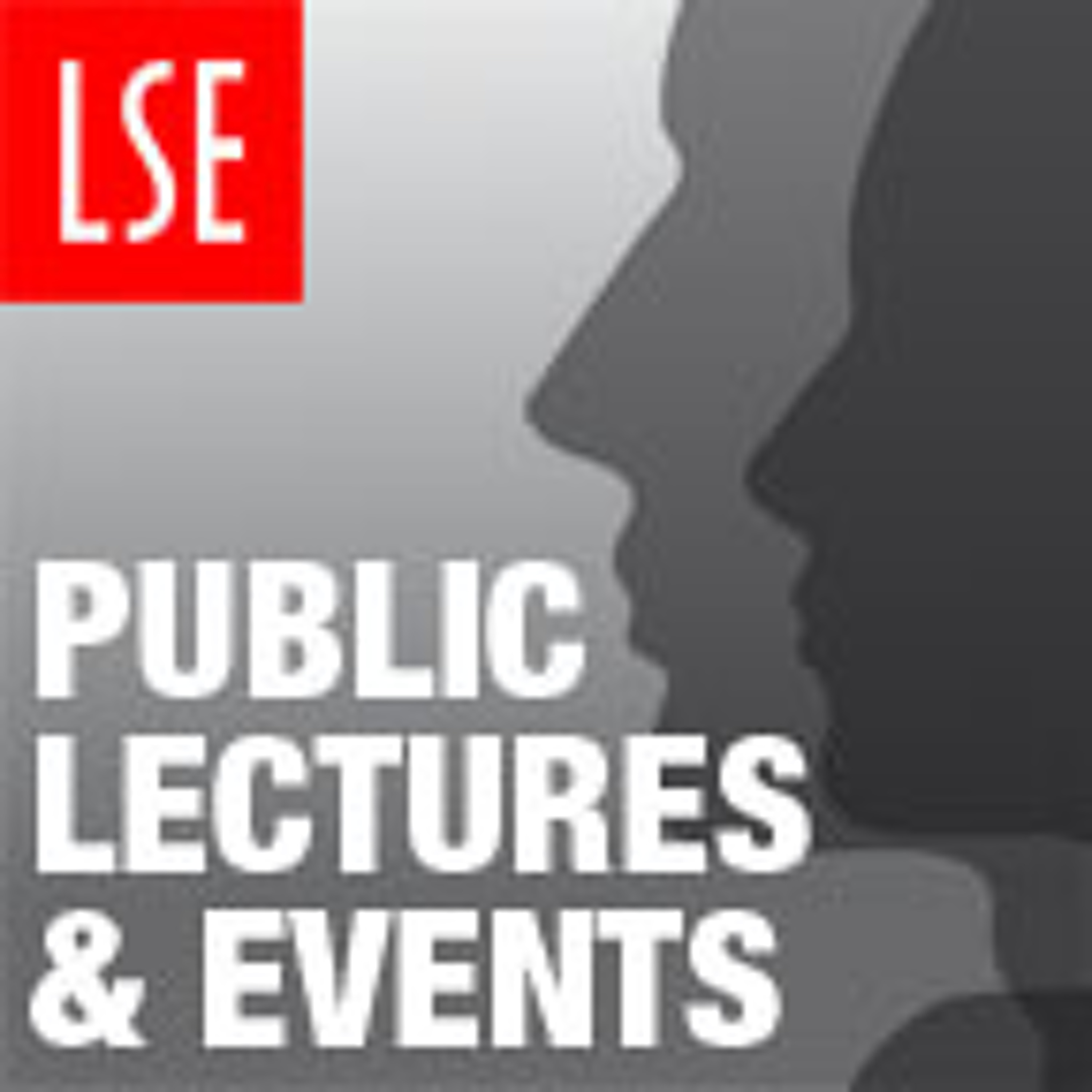 LSE PodcastsLess Poverty, More Precarity: squaring the circle of Southeast Asian development [Audio]Speaker(s): Professor Jonathan Rigg | Southeast Asia’s growth story is as impressive as it is well-known, with epithets like ‘miracle’, ‘tiger’ and ‘dragon’. There is, however, an accompanying narrative: of inequality, injustice, environmental crisis, and social malaise. Jonathan Rigg holds a professorship in the School of Geographical Sciences at the University of Bristol in the UK. Until this year, he was Director of the Asia Research Institute at the National University of Singapore. Hyun Bang Shin (@urbancommune) is Director of the Saw Swee Hock Southeast Asia Centre, and Professor of Geography and Urban Studies in the Department of Geography and Environmen...2020-01-301h 29
LSE PodcastsLess Poverty, More Precarity: squaring the circle of Southeast Asian development [Audio]Speaker(s): Professor Jonathan Rigg | Southeast Asia’s growth story is as impressive as it is well-known, with epithets like ‘miracle’, ‘tiger’ and ‘dragon’. There is, however, an accompanying narrative: of inequality, injustice, environmental crisis, and social malaise. Jonathan Rigg holds a professorship in the School of Geographical Sciences at the University of Bristol in the UK. Until this year, he was Director of the Asia Research Institute at the National University of Singapore. Hyun Bang Shin (@urbancommune) is Director of the Saw Swee Hock Southeast Asia Centre, and Professor of Geography and Urban Studies in the Department of Geography and Environmen...2020-01-301h 29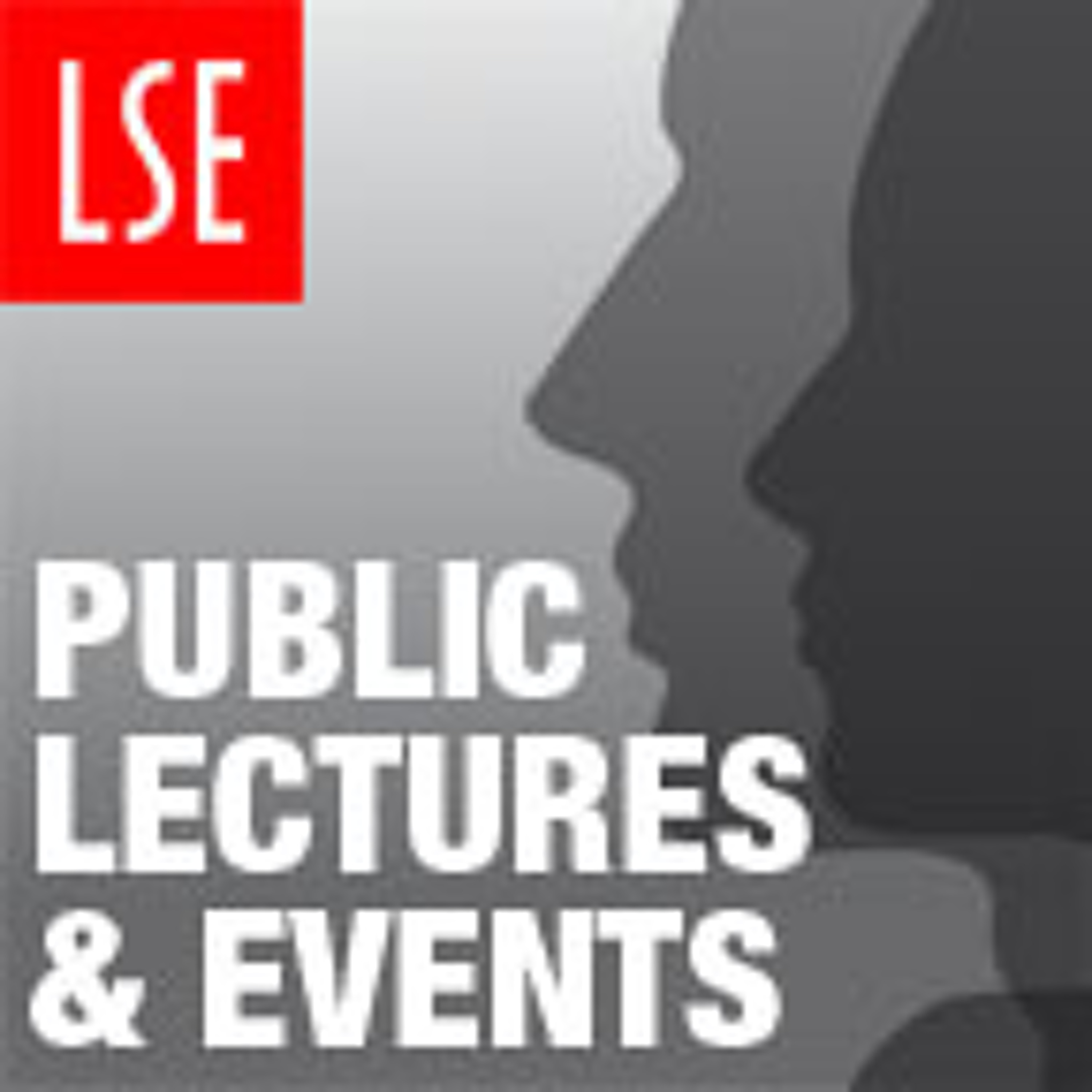 LSE PodcastsLSE Festival 2019 | New Reconciliations: the two Koreas [Audio]Speaker(s): Dr Jeong-Im Hyun, Dr Owen Miller, Professor Vladimir Tikhonov | Since early 2018, the two Koreas on the Korean Peninsula, known to be the last remaining divided countries since the end of the Second World War, have begun the road to reconciliation. A series of summit visits have taken place and are expected to continue, together with various events and projects that are expected to increase the level of interaction in terms of economy, politics, culture and infrastructure. What does this thawing relationship mean for the future of the Koreas and of the world? This roundtable discussion lasting 75 minutes, involve...2019-02-271h 01
LSE PodcastsLSE Festival 2019 | New Reconciliations: the two Koreas [Audio]Speaker(s): Dr Jeong-Im Hyun, Dr Owen Miller, Professor Vladimir Tikhonov | Since early 2018, the two Koreas on the Korean Peninsula, known to be the last remaining divided countries since the end of the Second World War, have begun the road to reconciliation. A series of summit visits have taken place and are expected to continue, together with various events and projects that are expected to increase the level of interaction in terms of economy, politics, culture and infrastructure. What does this thawing relationship mean for the future of the Koreas and of the world? This roundtable discussion lasting 75 minutes, involve...2019-02-271h 01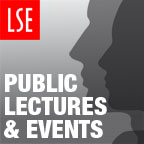 Latest 300 | LSE Public lectures and events | Audio and pdfIndonesia in ASEAN: reconciliation, active engagement and strategic reassessment [Audio]Speaker(s): Dr Rizal Sukma | Emerging from domestic political turmoil of 1966, Indonesia sought to re-orient its foreign policy of anti-west and regional confrontation. It pursued a policy of self-restraint for the benefit of regional reconciliation, through its role as a founding member of ASEAN in August 1967. Indonesia's credentials as a regional partner were cemented by its enthusiastic and active engagement in every aspect of ASEAN's activism ever since. Fifty years on, however, there is a need for a strategic reassessment of Indonesia's role in ASEAN and the extent to which ASEAN remains the main platform --the cornerstone--for the attainment of...2017-10-171h 37
Latest 300 | LSE Public lectures and events | Audio and pdfIndonesia in ASEAN: reconciliation, active engagement and strategic reassessment [Audio]Speaker(s): Dr Rizal Sukma | Emerging from domestic political turmoil of 1966, Indonesia sought to re-orient its foreign policy of anti-west and regional confrontation. It pursued a policy of self-restraint for the benefit of regional reconciliation, through its role as a founding member of ASEAN in August 1967. Indonesia's credentials as a regional partner were cemented by its enthusiastic and active engagement in every aspect of ASEAN's activism ever since. Fifty years on, however, there is a need for a strategic reassessment of Indonesia's role in ASEAN and the extent to which ASEAN remains the main platform --the cornerstone--for the attainment of...2017-10-171h 37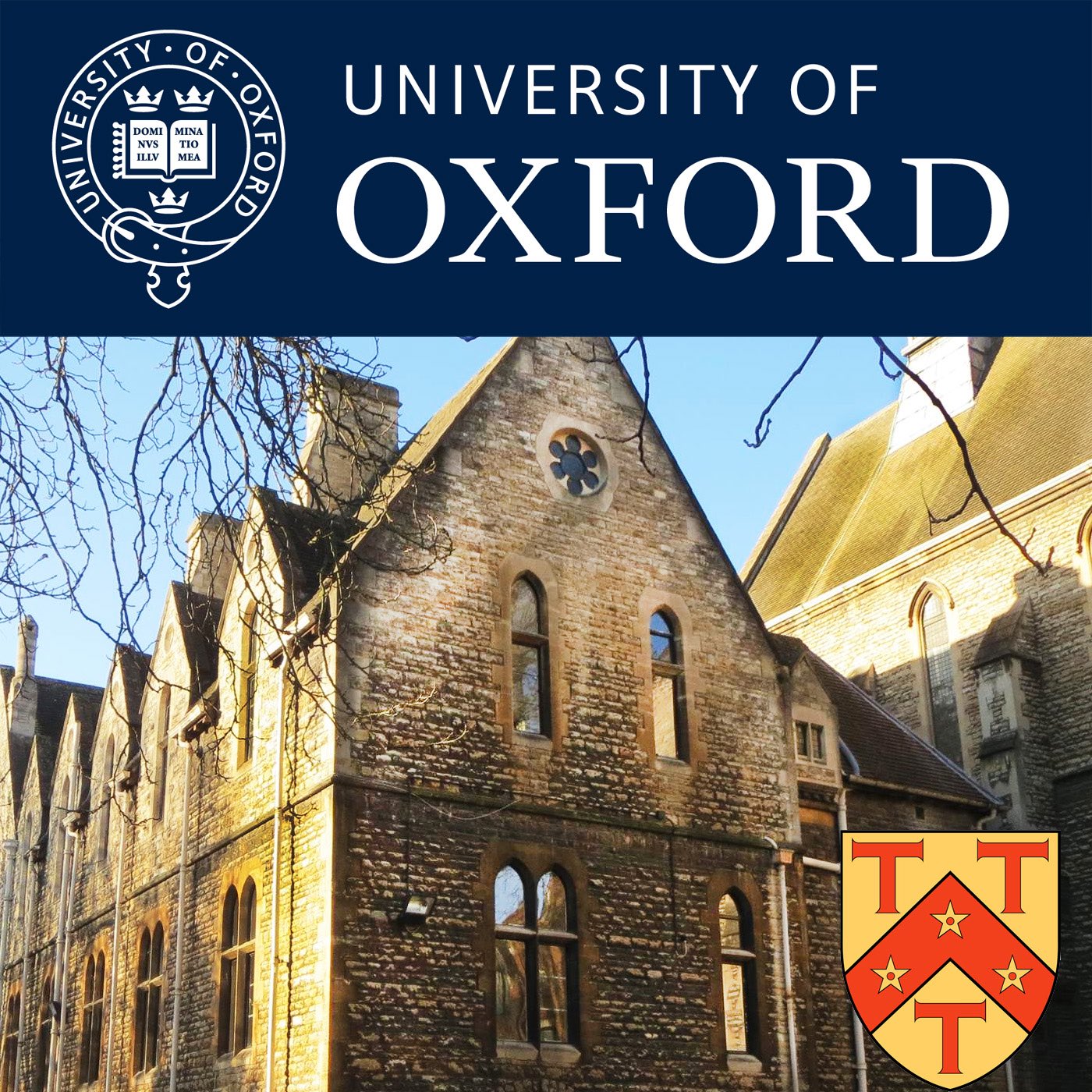 Asian Studies CentreIs the 21st Century Asia's?NB: The first minutes of the presentation were not recorded. Professor Danny Quah speaks at the International Politics of East Asia Seminar Many writers have noted how the international system might be on the cusp of a change, where the "America Century" will no longer describe world order. If, however, the challenge to the established international regime arises from East Asia in general, or from China in particular, the numbers are, at best, ambiguous. Moreover, the conventional narrative ascribes to the established system intangible attributes such as soft power that are difficult to dislodge.
This talk develops an alternative approach—of...2016-03-2452 min
Asian Studies CentreIs the 21st Century Asia's?NB: The first minutes of the presentation were not recorded. Professor Danny Quah speaks at the International Politics of East Asia Seminar Many writers have noted how the international system might be on the cusp of a change, where the "America Century" will no longer describe world order. If, however, the challenge to the established international regime arises from East Asia in general, or from China in particular, the numbers are, at best, ambiguous. Moreover, the conventional narrative ascribes to the established system intangible attributes such as soft power that are difficult to dislodge.
This talk develops an alternative approach—of...2016-03-2452 min Spring 2016 | Public lectures and events | VideoAfter the Drug Wars: report of the LSE Expert Group on the Economics of Drug PolicyContributor(s): Dr John Collins, Dr Joanne Csete, Catalina Pérez Correa González, Javier Segredo | As the UN meets to form the UN General Assembly Special Session on Drugs in 2016 many member states are examining how to roll back the war on drugs and institute new policies. The LSE Expert Group on the Economics of Drug Policy will provide a new framework for global drug control efforts, grounded in public health, sustainable development and human rights. John Collins is Executive Director of the International Drug Policy Project (IDPP). Joanne Csete is an Adjunct Professor of Public Health at Columbia Un...2016-02-151h 25
Spring 2016 | Public lectures and events | VideoAfter the Drug Wars: report of the LSE Expert Group on the Economics of Drug PolicyContributor(s): Dr John Collins, Dr Joanne Csete, Catalina Pérez Correa González, Javier Segredo | As the UN meets to form the UN General Assembly Special Session on Drugs in 2016 many member states are examining how to roll back the war on drugs and institute new policies. The LSE Expert Group on the Economics of Drug Policy will provide a new framework for global drug control efforts, grounded in public health, sustainable development and human rights. John Collins is Executive Director of the International Drug Policy Project (IDPP). Joanne Csete is an Adjunct Professor of Public Health at Columbia Un...2016-02-151h 25 Spring 2016 | Public lectures and events | Audio and pdfAfter the Drug Wars: report of the LSE Expert Group on the Economics of Drug PolicyContributor(s): Dr John Collins, Dr Joanne Csete, Catalina Pérez Correa González, Javier Segredo | As the UN meets to form the UN General Assembly Special Session on Drugs in 2016 many member states are examining how to roll back the war on drugs and institute new policies. The LSE Expert Group on the Economics of Drug Policy will provide a new framework for global drug control efforts, grounded in public health, sustainable development and human rights. John Collins is Executive Director of the International Drug Policy Project (IDPP). Joanne Csete is an Adjunct Professor of Public Health at Columbia Un...2016-02-151h 25
Spring 2016 | Public lectures and events | Audio and pdfAfter the Drug Wars: report of the LSE Expert Group on the Economics of Drug PolicyContributor(s): Dr John Collins, Dr Joanne Csete, Catalina Pérez Correa González, Javier Segredo | As the UN meets to form the UN General Assembly Special Session on Drugs in 2016 many member states are examining how to roll back the war on drugs and institute new policies. The LSE Expert Group on the Economics of Drug Policy will provide a new framework for global drug control efforts, grounded in public health, sustainable development and human rights. John Collins is Executive Director of the International Drug Policy Project (IDPP). Joanne Csete is an Adjunct Professor of Public Health at Columbia Un...2016-02-151h 25 Spring 2016 | Public lectures and events | VideoEach Age Gets the Bloodshed it Needs: 20,000 years of violenceContributor(s): Professor Ian Morris | 20,000 years ago, the average person stood a 10-20% chance of dying violently. Today, the chance is under 1%. We have cut rates of violent death by 90% by creating large organisations that impose peace; but the main method for creating these organisations has been war. In effect, violence has slowly been putting itself out of business. The broad trends suggest that this process will probably continue. Ian Morris is Philippe Roman Chair in History and International Affairs at LSE IDEAS for 2015-16. Professor Danny Quah (@DannyQuah) is Director of the Saw Swee Hock Southeast Asia Centre. LSE...2016-02-091h 32
Spring 2016 | Public lectures and events | VideoEach Age Gets the Bloodshed it Needs: 20,000 years of violenceContributor(s): Professor Ian Morris | 20,000 years ago, the average person stood a 10-20% chance of dying violently. Today, the chance is under 1%. We have cut rates of violent death by 90% by creating large organisations that impose peace; but the main method for creating these organisations has been war. In effect, violence has slowly been putting itself out of business. The broad trends suggest that this process will probably continue. Ian Morris is Philippe Roman Chair in History and International Affairs at LSE IDEAS for 2015-16. Professor Danny Quah (@DannyQuah) is Director of the Saw Swee Hock Southeast Asia Centre. LSE...2016-02-091h 32 Spring 2016 | Public lectures and events | Audio and pdfEach Age Gets the Bloodshed it Needs: 20,000 years of violenceContributor(s): Professor Ian Morris | 20,000 years ago, the average person stood a 10-20% chance of dying violently. Today, the chance is under 1%. We have cut rates of violent death by 90% by creating large organisations that impose peace; but the main method for creating these organisations has been war. In effect, violence has slowly been putting itself out of business. The broad trends suggest that this process will probably continue. Ian Morris is Philippe Roman Chair in History and International Affairs at LSE IDEAS for 2015-16. Professor Danny Quah (@DannyQuah) is Director of the Saw Swee Hock Southeast Asia Centre. LSE...2016-02-091h 32
Spring 2016 | Public lectures and events | Audio and pdfEach Age Gets the Bloodshed it Needs: 20,000 years of violenceContributor(s): Professor Ian Morris | 20,000 years ago, the average person stood a 10-20% chance of dying violently. Today, the chance is under 1%. We have cut rates of violent death by 90% by creating large organisations that impose peace; but the main method for creating these organisations has been war. In effect, violence has slowly been putting itself out of business. The broad trends suggest that this process will probably continue. Ian Morris is Philippe Roman Chair in History and International Affairs at LSE IDEAS for 2015-16. Professor Danny Quah (@DannyQuah) is Director of the Saw Swee Hock Southeast Asia Centre. LSE...2016-02-091h 32 Autumn 2015 | Public lectures and events | VideoWill the 21st Century be Asian?Contributor(s): Professor Michael Cox, Professor Danny Quah, Dr Leslie Vinjamuri | If the 19th century was Europe's - and the 20th century became America's - is there any reason why the 21st century should not be Asia's? Michael Cox is Director of LSE IDEAS. Danny Quah (@DannyQuah) is Director of the Saw Swee Hock Southeast Asia Centre. Leslie Vinjamuri is Co-Director of the Centre for the International Politics of Conflict, Rights and Justice and a Associate Professor in International Relations at SOAS, University of London. Tim Frost is a Founder and Director of Cairn Capital and Markit. LSE IDEAS (@LSEIDEAS...2015-11-021h 26
Autumn 2015 | Public lectures and events | VideoWill the 21st Century be Asian?Contributor(s): Professor Michael Cox, Professor Danny Quah, Dr Leslie Vinjamuri | If the 19th century was Europe's - and the 20th century became America's - is there any reason why the 21st century should not be Asia's? Michael Cox is Director of LSE IDEAS. Danny Quah (@DannyQuah) is Director of the Saw Swee Hock Southeast Asia Centre. Leslie Vinjamuri is Co-Director of the Centre for the International Politics of Conflict, Rights and Justice and a Associate Professor in International Relations at SOAS, University of London. Tim Frost is a Founder and Director of Cairn Capital and Markit. LSE IDEAS (@LSEIDEAS...2015-11-021h 26 Autumn 2015 | Public lectures and events | Audio and pdfWill the 21st Century be Asian?Contributor(s): Professor Michael Cox, Professor Danny Quah, Dr Leslie Vinjamuri | If the 19th century was Europe's - and the 20th century became America's - is there any reason why the 21st century should not be Asia's? Michael Cox is Director of LSE IDEAS. Danny Quah (@DannyQuah) is Director of the Saw Swee Hock Southeast Asia Centre. Leslie Vinjamuri is Co-Director of the Centre for the International Politics of Conflict, Rights and Justice and a Associate Professor in International Relations at SOAS, University of London. Tim Frost is a Founder and Director of Cairn Capital and Markit. LSE IDEAS (@LSEIDEAS...2015-11-021h 26
Autumn 2015 | Public lectures and events | Audio and pdfWill the 21st Century be Asian?Contributor(s): Professor Michael Cox, Professor Danny Quah, Dr Leslie Vinjamuri | If the 19th century was Europe's - and the 20th century became America's - is there any reason why the 21st century should not be Asia's? Michael Cox is Director of LSE IDEAS. Danny Quah (@DannyQuah) is Director of the Saw Swee Hock Southeast Asia Centre. Leslie Vinjamuri is Co-Director of the Centre for the International Politics of Conflict, Rights and Justice and a Associate Professor in International Relations at SOAS, University of London. Tim Frost is a Founder and Director of Cairn Capital and Markit. LSE IDEAS (@LSEIDEAS...2015-11-021h 26 Autumn 2015 | Public lectures and events | Audio and pdfMyanmar on the BrinkContributor(s): Mark Canning, Dr Jurgen Haacke, Shibani Mahtani | In 2010 the world saw in Myanmar both relief and opportunity when - thirteen years after Myanmar achieved ASEAN membership - political and economic reforms began, shifting Myanmar away from isolationist military rule towards civilian government. Even while the depth and degree of these reforms remain unclear, Myanmar, one of Southeast Asia's poorest and most fragile economies, has begun to see easing in its foreign relations, and international trade and investment engagements. But just as Myanmar's history has long been troubled, with one of the world's longest-running periods of ethnic strife and...2015-10-051h 26
Autumn 2015 | Public lectures and events | Audio and pdfMyanmar on the BrinkContributor(s): Mark Canning, Dr Jurgen Haacke, Shibani Mahtani | In 2010 the world saw in Myanmar both relief and opportunity when - thirteen years after Myanmar achieved ASEAN membership - political and economic reforms began, shifting Myanmar away from isolationist military rule towards civilian government. Even while the depth and degree of these reforms remain unclear, Myanmar, one of Southeast Asia's poorest and most fragile economies, has begun to see easing in its foreign relations, and international trade and investment engagements. But just as Myanmar's history has long been troubled, with one of the world's longest-running periods of ethnic strife and...2015-10-051h 26 Autumn 2015 | Public lectures and events | VideoMyanmar on the BrinkContributor(s): Mark Canning, Dr Jurgen Haacke, Shibani Mahtani | In 2010 the world saw in Myanmar both relief and opportunity when - thirteen years after Myanmar achieved ASEAN membership - political and economic reforms began, shifting Myanmar away from isolationist military rule towards civilian government. Even while the depth and degree of these reforms remain unclear, Myanmar, one of Southeast Asia's poorest and most fragile economies, has begun to see easing in its foreign relations, and international trade and investment engagements. But just as Myanmar's history has long been troubled, with one of the world's longest-running periods of ethnic strife and...2015-10-051h 26
Autumn 2015 | Public lectures and events | VideoMyanmar on the BrinkContributor(s): Mark Canning, Dr Jurgen Haacke, Shibani Mahtani | In 2010 the world saw in Myanmar both relief and opportunity when - thirteen years after Myanmar achieved ASEAN membership - political and economic reforms began, shifting Myanmar away from isolationist military rule towards civilian government. Even while the depth and degree of these reforms remain unclear, Myanmar, one of Southeast Asia's poorest and most fragile economies, has begun to see easing in its foreign relations, and international trade and investment engagements. But just as Myanmar's history has long been troubled, with one of the world's longest-running periods of ethnic strife and...2015-10-051h 26 Summer 2015 | Public lectures and events | Audio and pdfDealing with ChinaContributor(s): Hank Paulson, Lionel Barber | Hank Paulson has dealt with the government and business communities of China to a greater extent than any other foreigner alive today. As head of Goldman Sachs and as U.S. Treasury Secretary, he has worked with scores of top Chinese leaders, including Xi Jinping, China's most powerful man in decades. He will talk about his new book, Dealing with China, which takes readers behind closed doors to the future of China's state-controlled capitalism, in conversation with Lionel Barber. Henry M Paulson Jr is founder and chairman of the Paulson Institute, an independent center...2015-05-1159 min
Summer 2015 | Public lectures and events | Audio and pdfDealing with ChinaContributor(s): Hank Paulson, Lionel Barber | Hank Paulson has dealt with the government and business communities of China to a greater extent than any other foreigner alive today. As head of Goldman Sachs and as U.S. Treasury Secretary, he has worked with scores of top Chinese leaders, including Xi Jinping, China's most powerful man in decades. He will talk about his new book, Dealing with China, which takes readers behind closed doors to the future of China's state-controlled capitalism, in conversation with Lionel Barber. Henry M Paulson Jr is founder and chairman of the Paulson Institute, an independent center...2015-05-1159 min Summer 2015 | Public lectures and events | VideoDealing with ChinaContributor(s): Hank Paulson, Lionel Barber | Hank Paulson has dealt with the government and business communities of China to a greater extent than any other foreigner alive today. As head of Goldman Sachs and as U.S. Treasury Secretary, he has worked with scores of top Chinese leaders, including Xi Jinping, China's most powerful man in decades. He will talk about his new book, Dealing with China, which takes readers behind closed doors to the future of China's state-controlled capitalism, in conversation with Lionel Barber. Henry M Paulson Jr is founder and chairman of the Paulson Institute, an independent center...2015-05-1159 min
Summer 2015 | Public lectures and events | VideoDealing with ChinaContributor(s): Hank Paulson, Lionel Barber | Hank Paulson has dealt with the government and business communities of China to a greater extent than any other foreigner alive today. As head of Goldman Sachs and as U.S. Treasury Secretary, he has worked with scores of top Chinese leaders, including Xi Jinping, China's most powerful man in decades. He will talk about his new book, Dealing with China, which takes readers behind closed doors to the future of China's state-controlled capitalism, in conversation with Lionel Barber. Henry M Paulson Jr is founder and chairman of the Paulson Institute, an independent center...2015-05-1159 min Spring 2015 | Public lectures and events | VideoLiterary Festival 2015: Rebellion and Foundation: Southeast Asia, the UK and 50 years of developmentContributor(s): Ahmad Zakii Anwar, Nickson Fong, Yang-May Ooi | This year the Association of South East Asian Nations (ASEAN) becomes an integrated economic community. The year caps five decades of foundation and development since the region's formal independence from the West. What are the creative voices contending for the soul of a region where freedom, economic prosperity, civil society, and political maturity continue to evolve in unexpected ways? What forces of rebellion drive the soul of the individual in those societies where economic success - arguably the greatest found in newly-independent states in all human history - has raced ahead...2015-02-281h 26
Spring 2015 | Public lectures and events | VideoLiterary Festival 2015: Rebellion and Foundation: Southeast Asia, the UK and 50 years of developmentContributor(s): Ahmad Zakii Anwar, Nickson Fong, Yang-May Ooi | This year the Association of South East Asian Nations (ASEAN) becomes an integrated economic community. The year caps five decades of foundation and development since the region's formal independence from the West. What are the creative voices contending for the soul of a region where freedom, economic prosperity, civil society, and political maturity continue to evolve in unexpected ways? What forces of rebellion drive the soul of the individual in those societies where economic success - arguably the greatest found in newly-independent states in all human history - has raced ahead...2015-02-281h 26 Spring 2015 | Public lectures and events | Audio and pdfLiterary Festival 2015: Rebellion and Foundation: Southeast Asia, the UK and 50 years of developmentContributor(s): Ahmad Zakii Anwar, Nickson Fong, Yang-May Ooi | This year the Association of South East Asian Nations (ASEAN) becomes an integrated economic community. The year caps five decades of foundation and development since the region's formal independence from the West. What are the creative voices contending for the soul of a region where freedom, economic prosperity, civil society, and political maturity continue to evolve in unexpected ways? What forces of rebellion drive the soul of the individual in those societies where economic success - arguably the greatest found in newly-independent states in all human history - has raced ahead...2015-02-281h 26
Spring 2015 | Public lectures and events | Audio and pdfLiterary Festival 2015: Rebellion and Foundation: Southeast Asia, the UK and 50 years of developmentContributor(s): Ahmad Zakii Anwar, Nickson Fong, Yang-May Ooi | This year the Association of South East Asian Nations (ASEAN) becomes an integrated economic community. The year caps five decades of foundation and development since the region's formal independence from the West. What are the creative voices contending for the soul of a region where freedom, economic prosperity, civil society, and political maturity continue to evolve in unexpected ways? What forces of rebellion drive the soul of the individual in those societies where economic success - arguably the greatest found in newly-independent states in all human history - has raced ahead...2015-02-281h 26 Spring 2015 | Public lectures and events | VideoAyn Rand, the Financial Crisis and the Age of SelfishnessContributor(s): Darryl Cunningham | An illustrated lecture by graphic journalist Darryl Cunningham based on his new book, Supercrash: How To Hijack The Global Economy, which traces the roots of our age of selfishness, the origins of the 2008 financial crisis and its consequences. He discusses who was to blame and how they got clean away with it. Darryl Cunningham (AcmeDarryl) is a cartoonist whose speciality is graphic journalism, investigating hard hitting topics in comic book form. He is the author of the highly acclaimed Psychiatric Tales and Science Tales, shortlisted for the British Comic Awards 2012: Best Book. Darryl’s latest book Su...2015-02-181h 27
Spring 2015 | Public lectures and events | VideoAyn Rand, the Financial Crisis and the Age of SelfishnessContributor(s): Darryl Cunningham | An illustrated lecture by graphic journalist Darryl Cunningham based on his new book, Supercrash: How To Hijack The Global Economy, which traces the roots of our age of selfishness, the origins of the 2008 financial crisis and its consequences. He discusses who was to blame and how they got clean away with it. Darryl Cunningham (AcmeDarryl) is a cartoonist whose speciality is graphic journalism, investigating hard hitting topics in comic book form. He is the author of the highly acclaimed Psychiatric Tales and Science Tales, shortlisted for the British Comic Awards 2012: Best Book. Darryl’s latest book Su...2015-02-181h 27 Spring 2015 | Public lectures and events | Audio and pdfAyn Rand, the Financial Crisis and the Age of SelfishnessContributor(s): Darryl Cunningham | An illustrated lecture by graphic journalist Darryl Cunningham based on his new book, Supercrash: How To Hijack The Global Economy, which traces the roots of our age of selfishness, the origins of the 2008 financial crisis and its consequences. He discusses who was to blame and how they got clean away with it. Darryl Cunningham (AcmeDarryl) is a cartoonist whose speciality is graphic journalism, investigating hard hitting topics in comic book form. He is the author of the highly acclaimed Psychiatric Tales and Science Tales, shortlisted for the British Comic Awards 2012: Best Book. Darryl’s latest book Su...2015-02-181h 27
Spring 2015 | Public lectures and events | Audio and pdfAyn Rand, the Financial Crisis and the Age of SelfishnessContributor(s): Darryl Cunningham | An illustrated lecture by graphic journalist Darryl Cunningham based on his new book, Supercrash: How To Hijack The Global Economy, which traces the roots of our age of selfishness, the origins of the 2008 financial crisis and its consequences. He discusses who was to blame and how they got clean away with it. Darryl Cunningham (AcmeDarryl) is a cartoonist whose speciality is graphic journalism, investigating hard hitting topics in comic book form. He is the author of the highly acclaimed Psychiatric Tales and Science Tales, shortlisted for the British Comic Awards 2012: Best Book. Darryl’s latest book Su...2015-02-181h 27 Spring 2015 | Public lectures and events | VideoHong Kong: the struggle at the end of historyContributor(s): Professor Conor Gearty, Raymond Li, Professor Danny Quah, Isabella Steger | The Umbrella Revolution has re-ignited a global debate on democracy. Why have the dynamics in this small ex British Colony captured the imagination of the world? Conor Gearty (@conorgearty) is Director of the Institute of Public Affairs and Professor of Human Rights Law at LSE. Raymond Li is BBC Chinese Editor since 2009. Danny Quah (@DannyQuah) is Director of the Saw Swee Hock Southeast Asia Centre and Professor of Economics and International Development at LSE. Isabella Steger (@stegersaurus) reports for the Wall Street Journal in Hong Kong. Dr Mukulika...2015-02-101h 35
Spring 2015 | Public lectures and events | VideoHong Kong: the struggle at the end of historyContributor(s): Professor Conor Gearty, Raymond Li, Professor Danny Quah, Isabella Steger | The Umbrella Revolution has re-ignited a global debate on democracy. Why have the dynamics in this small ex British Colony captured the imagination of the world? Conor Gearty (@conorgearty) is Director of the Institute of Public Affairs and Professor of Human Rights Law at LSE. Raymond Li is BBC Chinese Editor since 2009. Danny Quah (@DannyQuah) is Director of the Saw Swee Hock Southeast Asia Centre and Professor of Economics and International Development at LSE. Isabella Steger (@stegersaurus) reports for the Wall Street Journal in Hong Kong. Dr Mukulika...2015-02-101h 35 Spring 2015 | Public lectures and events | Audio and pdfHong Kong: the struggle at the end of historyContributor(s): Professor Conor Gearty, Raymond Li, Professor Danny Quah, Isabella Steger | The Umbrella Revolution has re-ignited a global debate on democracy. Why have the dynamics in this small ex British Colony captured the imagination of the world? Conor Gearty (@conorgearty) is Director of the Institute of Public Affairs and Professor of Human Rights Law at LSE. Raymond Li is BBC Chinese Editor since 2009. Danny Quah (@DannyQuah) is Director of the Saw Swee Hock Southeast Asia Centre and Professor of Economics and International Development at LSE. Isabella Steger (@stegersaurus) reports for the Wall Street Journal in Hong Kong. Dr Mukulika...2015-02-101h 35
Spring 2015 | Public lectures and events | Audio and pdfHong Kong: the struggle at the end of historyContributor(s): Professor Conor Gearty, Raymond Li, Professor Danny Quah, Isabella Steger | The Umbrella Revolution has re-ignited a global debate on democracy. Why have the dynamics in this small ex British Colony captured the imagination of the world? Conor Gearty (@conorgearty) is Director of the Institute of Public Affairs and Professor of Human Rights Law at LSE. Raymond Li is BBC Chinese Editor since 2009. Danny Quah (@DannyQuah) is Director of the Saw Swee Hock Southeast Asia Centre and Professor of Economics and International Development at LSE. Isabella Steger (@stegersaurus) reports for the Wall Street Journal in Hong Kong. Dr Mukulika...2015-02-101h 35 Spring 2015 | Public lectures and events | VideoThe Butterfly DefectContributor(s): Professor Ian Goldin, Professor Danny Quah | Professor Goldin will address how global hyperconnectivity creates systemic risks and how this can be managed effectively. Ian Goldin is Director of the Oxford Martin School and Professor of Globalisation and Development at the University of Oxford. Professor Goldin was Vice President of the World Bank (2003-2006) and prior to that the Bank's Director of Development Policy (2001-2003). He served on the Bank's senior management team and led the Bank's collaboration with the United Nations and other partners as well as with key countries. As Director of Development Policy, he played a...2015-02-031h 31
Spring 2015 | Public lectures and events | VideoThe Butterfly DefectContributor(s): Professor Ian Goldin, Professor Danny Quah | Professor Goldin will address how global hyperconnectivity creates systemic risks and how this can be managed effectively. Ian Goldin is Director of the Oxford Martin School and Professor of Globalisation and Development at the University of Oxford. Professor Goldin was Vice President of the World Bank (2003-2006) and prior to that the Bank's Director of Development Policy (2001-2003). He served on the Bank's senior management team and led the Bank's collaboration with the United Nations and other partners as well as with key countries. As Director of Development Policy, he played a...2015-02-031h 31 Spring 2015 | Public lectures and events | Audio and pdfThe Butterfly DefectContributor(s): Professor Ian Goldin, Professor Danny Quah | Professor Goldin will address how global hyperconnectivity creates systemic risks and how this can be managed effectively. Ian Goldin is Director of the Oxford Martin School and Professor of Globalisation and Development at the University of Oxford. Professor Goldin was Vice President of the World Bank (2003-2006) and prior to that the Bank's Director of Development Policy (2001-2003). He served on the Bank's senior management team and led the Bank's collaboration with the United Nations and other partners as well as with key countries. As Director of Development Policy, he played a...2015-02-031h 31
Spring 2015 | Public lectures and events | Audio and pdfThe Butterfly DefectContributor(s): Professor Ian Goldin, Professor Danny Quah | Professor Goldin will address how global hyperconnectivity creates systemic risks and how this can be managed effectively. Ian Goldin is Director of the Oxford Martin School and Professor of Globalisation and Development at the University of Oxford. Professor Goldin was Vice President of the World Bank (2003-2006) and prior to that the Bank's Director of Development Policy (2001-2003). He served on the Bank's senior management team and led the Bank's collaboration with the United Nations and other partners as well as with key countries. As Director of Development Policy, he played a...2015-02-031h 31 Spring 2015 | Public lectures and events | VideoAEC 2015 – A Perspective from BusinessContributor(s): Dato Sri Nazir Razak | How will the ASEAN Economic Community change the political and economic landscape of Southeast Asia? What form will it take and will it be sustainable? Dato Sri Nazir Razak is Chair of the CIMB Group. Danny Quah (@DannyQuah) is Professor of Economics and International Development, and Director of the Saw Swee Hock Southeast Asia Centre at LSE. Established in 2014, the Saw Swee Hock Southeast Asia Centre (@LSESEAC) is an inter-disciplinary, regionally-focused academic centre within the LSE. Building on the School's deep academic and historical connections with Southeast Asia, the Centre serves as a hub...2015-01-281h 28
Spring 2015 | Public lectures and events | VideoAEC 2015 – A Perspective from BusinessContributor(s): Dato Sri Nazir Razak | How will the ASEAN Economic Community change the political and economic landscape of Southeast Asia? What form will it take and will it be sustainable? Dato Sri Nazir Razak is Chair of the CIMB Group. Danny Quah (@DannyQuah) is Professor of Economics and International Development, and Director of the Saw Swee Hock Southeast Asia Centre at LSE. Established in 2014, the Saw Swee Hock Southeast Asia Centre (@LSESEAC) is an inter-disciplinary, regionally-focused academic centre within the LSE. Building on the School's deep academic and historical connections with Southeast Asia, the Centre serves as a hub...2015-01-281h 28 Spring 2015 | Public lectures and events | Audio and pdfAEC 2015 – A Perspective from BusinessContributor(s): Dato Sri Nazir Razak | How will the ASEAN Economic Community change the political and economic landscape of Southeast Asia? What form will it take and will it be sustainable? Dato Sri Nazir Razak is Chair of the CIMB Group. Danny Quah (@DannyQuah) is Professor of Economics and International Development, and Director of the Saw Swee Hock Southeast Asia Centre at LSE. Established in 2014, the Saw Swee Hock Southeast Asia Centre (@LSESEAC) is an inter-disciplinary, regionally-focused academic centre within the LSE. Building on the School's deep academic and historical connections with Southeast Asia, the Centre serves as a hub...2015-01-281h 28
Spring 2015 | Public lectures and events | Audio and pdfAEC 2015 – A Perspective from BusinessContributor(s): Dato Sri Nazir Razak | How will the ASEAN Economic Community change the political and economic landscape of Southeast Asia? What form will it take and will it be sustainable? Dato Sri Nazir Razak is Chair of the CIMB Group. Danny Quah (@DannyQuah) is Professor of Economics and International Development, and Director of the Saw Swee Hock Southeast Asia Centre at LSE. Established in 2014, the Saw Swee Hock Southeast Asia Centre (@LSESEAC) is an inter-disciplinary, regionally-focused academic centre within the LSE. Building on the School's deep academic and historical connections with Southeast Asia, the Centre serves as a hub...2015-01-281h 28 2014 | LSE Public lectures and events | Audio and pdfIn Conversation with Cherie BlairContributor(s): Cherie Blair | To mark the completion of the Saw Swee Hock Student Centre, the first brand new building on campus for more than 40 years, the London School of Economics and Political Science (LSE) and the LSE Students’ Union have organised a series of ‘in conversation’ events with some of the School's distinguished alumni. These events will take place in the Saw Swee Hock Student Centre and will be open to LSE students, alumni and staff. This event will see Cherie Blair in conversation with Professor Julia Black. Wife of former British Prime Minister Tony Blair, leading lawyer and commit...2014-05-011h 15
2014 | LSE Public lectures and events | Audio and pdfIn Conversation with Cherie BlairContributor(s): Cherie Blair | To mark the completion of the Saw Swee Hock Student Centre, the first brand new building on campus for more than 40 years, the London School of Economics and Political Science (LSE) and the LSE Students’ Union have organised a series of ‘in conversation’ events with some of the School's distinguished alumni. These events will take place in the Saw Swee Hock Student Centre and will be open to LSE students, alumni and staff. This event will see Cherie Blair in conversation with Professor Julia Black. Wife of former British Prime Minister Tony Blair, leading lawyer and commit...2014-05-011h 15 2014 | LSE Public lectures and events | VideoIn Conversation with Cherie BlairContributor(s): Cherie Blair | To mark the completion of the Saw Swee Hock Student Centre, the first brand new building on campus for more than 40 years, the London School of Economics and Political Science (LSE) and the LSE Students’ Union have organised a series of ‘in conversation’ events with some of the School's distinguished alumni. These events will take place in the Saw Swee Hock Student Centre and will be open to LSE students, alumni and staff. This event will see Cherie Blair in conversation with Professor Julia Black. Wife of former British Prime Minister Tony Blair, leading lawyer and commit...2014-05-011h 15
2014 | LSE Public lectures and events | VideoIn Conversation with Cherie BlairContributor(s): Cherie Blair | To mark the completion of the Saw Swee Hock Student Centre, the first brand new building on campus for more than 40 years, the London School of Economics and Political Science (LSE) and the LSE Students’ Union have organised a series of ‘in conversation’ events with some of the School's distinguished alumni. These events will take place in the Saw Swee Hock Student Centre and will be open to LSE students, alumni and staff. This event will see Cherie Blair in conversation with Professor Julia Black. Wife of former British Prime Minister Tony Blair, leading lawyer and commit...2014-05-011h 15 Summer 2014 | Public lectures and events | VideoIn Conversation with Cherie BlairContributor(s): Cherie Blair | To mark the completion of the Saw Swee Hock Student Centre, the first brand new building on campus for more than 40 years, the London School of Economics and Political Science (LSE) and the LSE Students’ Union have organised a series of ‘in conversation’ events with some of the School's distinguished alumni. These events will take place in the Saw Swee Hock Student Centre and will be open to LSE students, alumni and staff. This event will see Cherie Blair in conversation with Professor Julia Black. Wife of former British Prime Minister Tony Blair, leading lawyer and commit...2014-05-011h 15
Summer 2014 | Public lectures and events | VideoIn Conversation with Cherie BlairContributor(s): Cherie Blair | To mark the completion of the Saw Swee Hock Student Centre, the first brand new building on campus for more than 40 years, the London School of Economics and Political Science (LSE) and the LSE Students’ Union have organised a series of ‘in conversation’ events with some of the School's distinguished alumni. These events will take place in the Saw Swee Hock Student Centre and will be open to LSE students, alumni and staff. This event will see Cherie Blair in conversation with Professor Julia Black. Wife of former British Prime Minister Tony Blair, leading lawyer and commit...2014-05-011h 15 Summer 2014 | Public lectures and events | Audio and pdfIn Conversation with Cherie BlairContributor(s): Cherie Blair | To mark the completion of the Saw Swee Hock Student Centre, the first brand new building on campus for more than 40 years, the London School of Economics and Political Science (LSE) and the LSE Students’ Union have organised a series of ‘in conversation’ events with some of the School's distinguished alumni. These events will take place in the Saw Swee Hock Student Centre and will be open to LSE students, alumni and staff. This event will see Cherie Blair in conversation with Professor Julia Black. Wife of former British Prime Minister Tony Blair, leading lawyer and commit...2014-05-011h 15
Summer 2014 | Public lectures and events | Audio and pdfIn Conversation with Cherie BlairContributor(s): Cherie Blair | To mark the completion of the Saw Swee Hock Student Centre, the first brand new building on campus for more than 40 years, the London School of Economics and Political Science (LSE) and the LSE Students’ Union have organised a series of ‘in conversation’ events with some of the School's distinguished alumni. These events will take place in the Saw Swee Hock Student Centre and will be open to LSE students, alumni and staff. This event will see Cherie Blair in conversation with Professor Julia Black. Wife of former British Prime Minister Tony Blair, leading lawyer and commit...2014-05-011h 15 2014 | LSE Public lectures and events | VideoIn Conversation with Bronwyn CurtisContributor(s): Bronwyn Curtis | To mark the completion of the Saw Swee Hock Student Centre, the first brand new building on campus for more than 40 years, the London School of Economics and Political Science (LSE) and the LSE Students’ Union have organised a series of ‘in conversation’ events with some of the School's distinguished alumni. These events will take place in the Saw Swee Hock Student Centre and will be open to LSE students, alumni and staff.This event will see Bronwyn Curtis in conversation with Professor Danny Quah. Bronwyn Curtis is an economist whose career spans both the financial market...2014-03-031h 14
2014 | LSE Public lectures and events | VideoIn Conversation with Bronwyn CurtisContributor(s): Bronwyn Curtis | To mark the completion of the Saw Swee Hock Student Centre, the first brand new building on campus for more than 40 years, the London School of Economics and Political Science (LSE) and the LSE Students’ Union have organised a series of ‘in conversation’ events with some of the School's distinguished alumni. These events will take place in the Saw Swee Hock Student Centre and will be open to LSE students, alumni and staff.This event will see Bronwyn Curtis in conversation with Professor Danny Quah. Bronwyn Curtis is an economist whose career spans both the financial market...2014-03-031h 14 2014 | LSE Public lectures and events | Audio and pdfIn Conversation with Bronwyn CurtisContributor(s): Bronwyn Curtis | To mark the completion of the Saw Swee Hock Student Centre, the first brand new building on campus for more than 40 years, the London School of Economics and Political Science (LSE) and the LSE Students’ Union have organised a series of ‘in conversation’ events with some of the School's distinguished alumni. These events will take place in the Saw Swee Hock Student Centre and will be open to LSE students, alumni and staff.This event will see Bronwyn Curtis in conversation with Professor Danny Quah. Bronwyn Curtis is an economist whose career spans both the financial market...2014-03-031h 14
2014 | LSE Public lectures and events | Audio and pdfIn Conversation with Bronwyn CurtisContributor(s): Bronwyn Curtis | To mark the completion of the Saw Swee Hock Student Centre, the first brand new building on campus for more than 40 years, the London School of Economics and Political Science (LSE) and the LSE Students’ Union have organised a series of ‘in conversation’ events with some of the School's distinguished alumni. These events will take place in the Saw Swee Hock Student Centre and will be open to LSE students, alumni and staff.This event will see Bronwyn Curtis in conversation with Professor Danny Quah. Bronwyn Curtis is an economist whose career spans both the financial market...2014-03-031h 14 Spring 2014 | Public lectures and events | Audio and pdfIn Conversation with Bronwyn CurtisContributor(s): Bronwyn Curtis | To mark the completion of the Saw Swee Hock Student Centre, the first brand new building on campus for more than 40 years, the London School of Economics and Political Science (LSE) and the LSE Students’ Union have organised a series of ‘in conversation’ events with some of the School's distinguished alumni. These events will take place in the Saw Swee Hock Student Centre and will be open to LSE students, alumni and staff.This event will see Bronwyn Curtis in conversation with Professor Danny Quah. Bronwyn Curtis is an economist whose career spans both the financial market...2014-03-031h 14
Spring 2014 | Public lectures and events | Audio and pdfIn Conversation with Bronwyn CurtisContributor(s): Bronwyn Curtis | To mark the completion of the Saw Swee Hock Student Centre, the first brand new building on campus for more than 40 years, the London School of Economics and Political Science (LSE) and the LSE Students’ Union have organised a series of ‘in conversation’ events with some of the School's distinguished alumni. These events will take place in the Saw Swee Hock Student Centre and will be open to LSE students, alumni and staff.This event will see Bronwyn Curtis in conversation with Professor Danny Quah. Bronwyn Curtis is an economist whose career spans both the financial market...2014-03-031h 14 Spring 2014 | Public lectures and events | VideoIn Conversation with Bronwyn CurtisContributor(s): Bronwyn Curtis | To mark the completion of the Saw Swee Hock Student Centre, the first brand new building on campus for more than 40 years, the London School of Economics and Political Science (LSE) and the LSE Students’ Union have organised a series of ‘in conversation’ events with some of the School's distinguished alumni. These events will take place in the Saw Swee Hock Student Centre and will be open to LSE students, alumni and staff.This event will see Bronwyn Curtis in conversation with Professor Danny Quah. Bronwyn Curtis is an economist whose career spans both the financial market...2014-03-031h 14
Spring 2014 | Public lectures and events | VideoIn Conversation with Bronwyn CurtisContributor(s): Bronwyn Curtis | To mark the completion of the Saw Swee Hock Student Centre, the first brand new building on campus for more than 40 years, the London School of Economics and Political Science (LSE) and the LSE Students’ Union have organised a series of ‘in conversation’ events with some of the School's distinguished alumni. These events will take place in the Saw Swee Hock Student Centre and will be open to LSE students, alumni and staff.This event will see Bronwyn Curtis in conversation with Professor Danny Quah. Bronwyn Curtis is an economist whose career spans both the financial market...2014-03-031h 14